These Are the Names for People Living in Every State
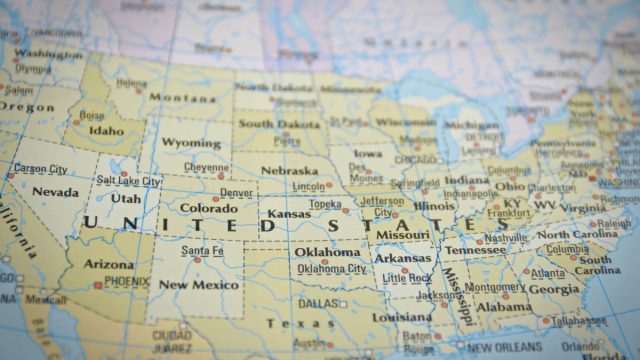
Chances are you know most names for state residents: People who live in California are Californians, people who live in New York are New Yorkers, and people who live in Pennsylvania are—that’s right—Pennsylvanians. Not every demonym is so straightforward, however. In some states, the nomenclature is gnarly and the parlance perilous. Just try calling someone who resides in Indiana an Indianian, for example. Trust us, it’s a mistake you won’t make twice. Whether you’re a resident, a visitor, or you’re just passing through, here’s what you should—and shouldn’t—call the folks who live in every U.S. state.
1
Alabama
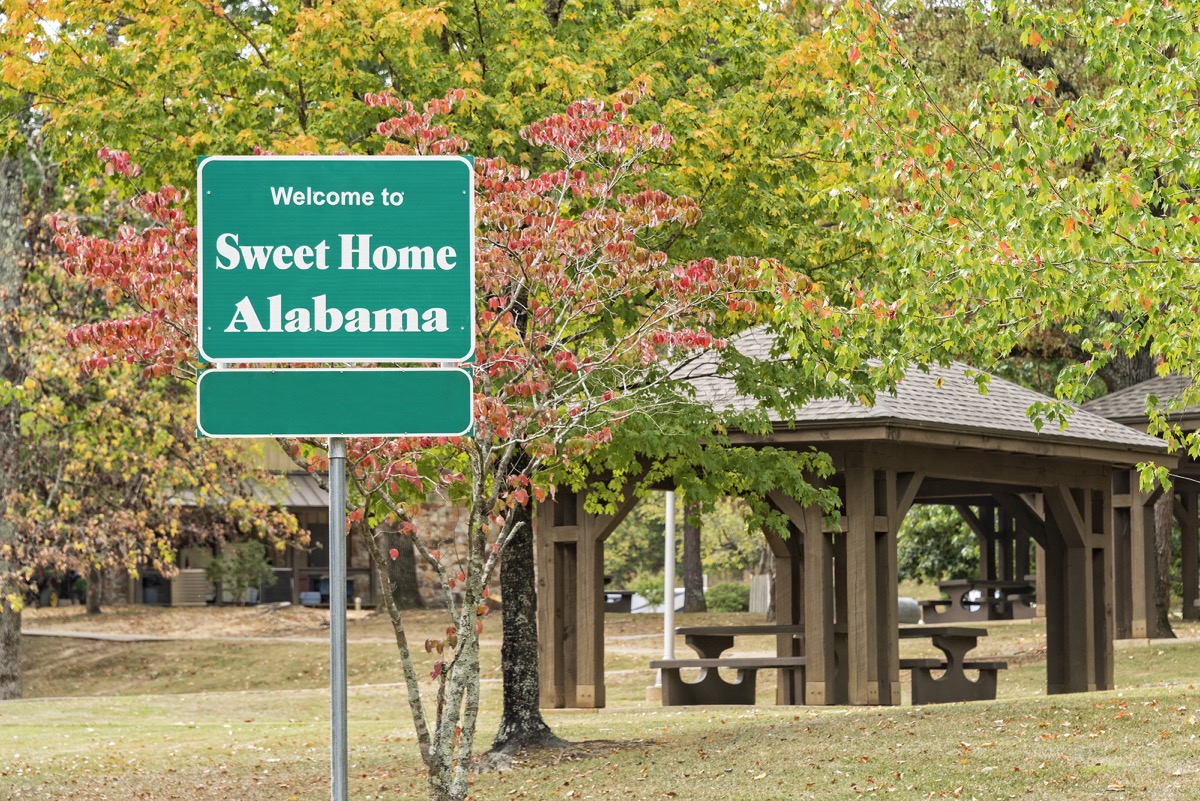
In Alabama, you can get away with calling people Alabamans or Alabamians, but the latter is preferred. Because college football is religion in the state, you might also hear people called—sometimes dotingly, often disparagingly—Bammers, Barners or Blazers for their allegiance to the University of Alabama, Auburn University, and the University of Alabama at Birmingham, respectively.
2
Alaska

If you find yourself in Alaska, you can call the people you meet Alaskans. You should also be aware, however, that Alaska is home to many native peoples who wish to be called by their indigenous names—for example, Inuk (singular) and Inuit (plural). Whatever you do, don’t call natives Eskimos; although some people are fine with the term, many consider it to be offensive.
3
Arizona
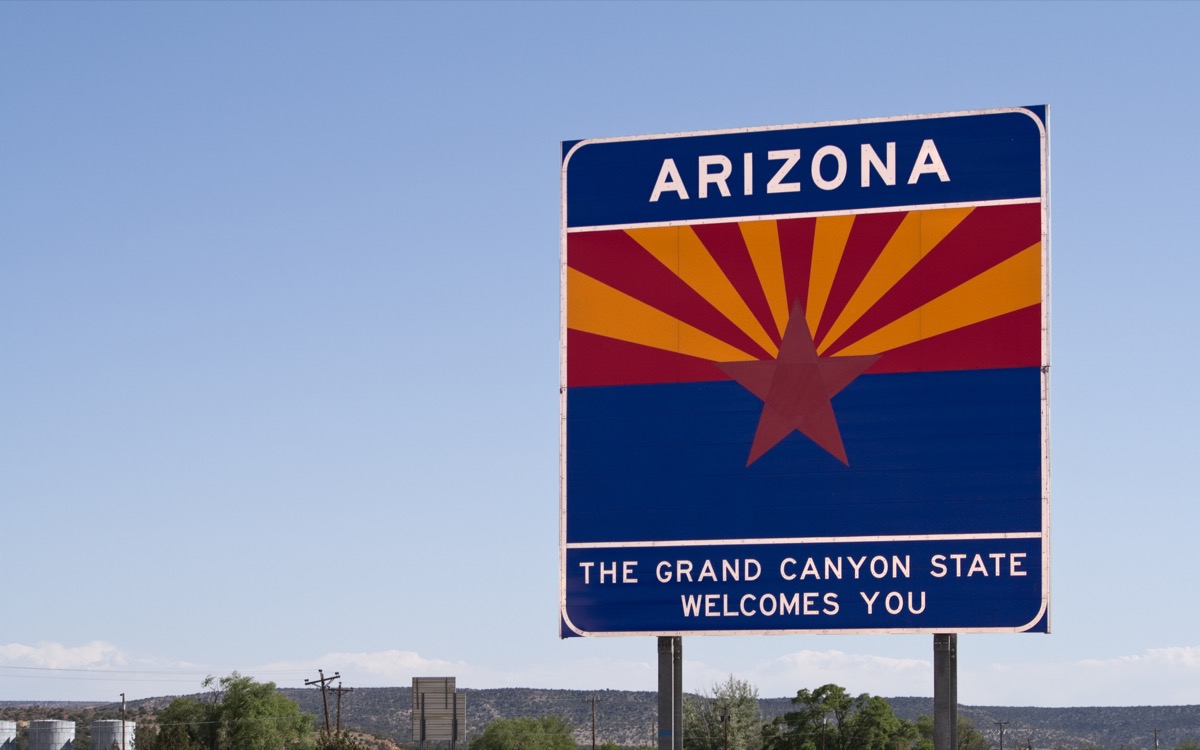
Although you might hear people from other states call them Sand Cutters—presumably because of its desert landscape—people who live in Arizona simply call themselves Arizonans.
4
Arkansas
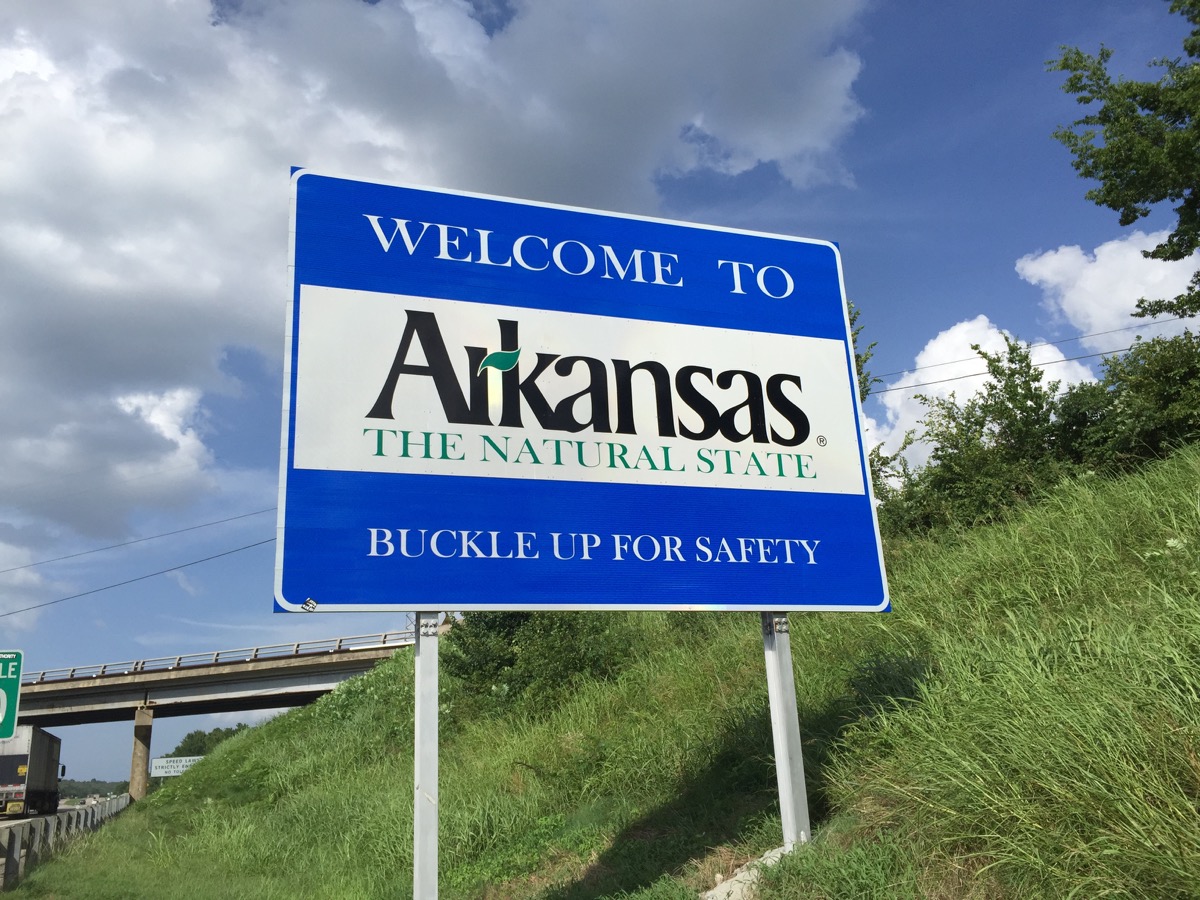
In Arkansas, you’re either an Arkansan or an Arkansawyer. If you believe the famous poet Walt Whitman, you might even be an Arkansian. Really, it just depends on who you ask. The debate stems back more than a century, as residents used to argue about whether the state should be pronounced “Ar-kansas”—like the state Kansas—or “Arkan-saw.” Although the state legislature officially chose the latter in 1881, the word Arkansan survived despite its linguistic flaw and remains the word of choice for most locals—notwithstanding writers and old-timers, many of who still prefer the term Arkansawyer.
5
California
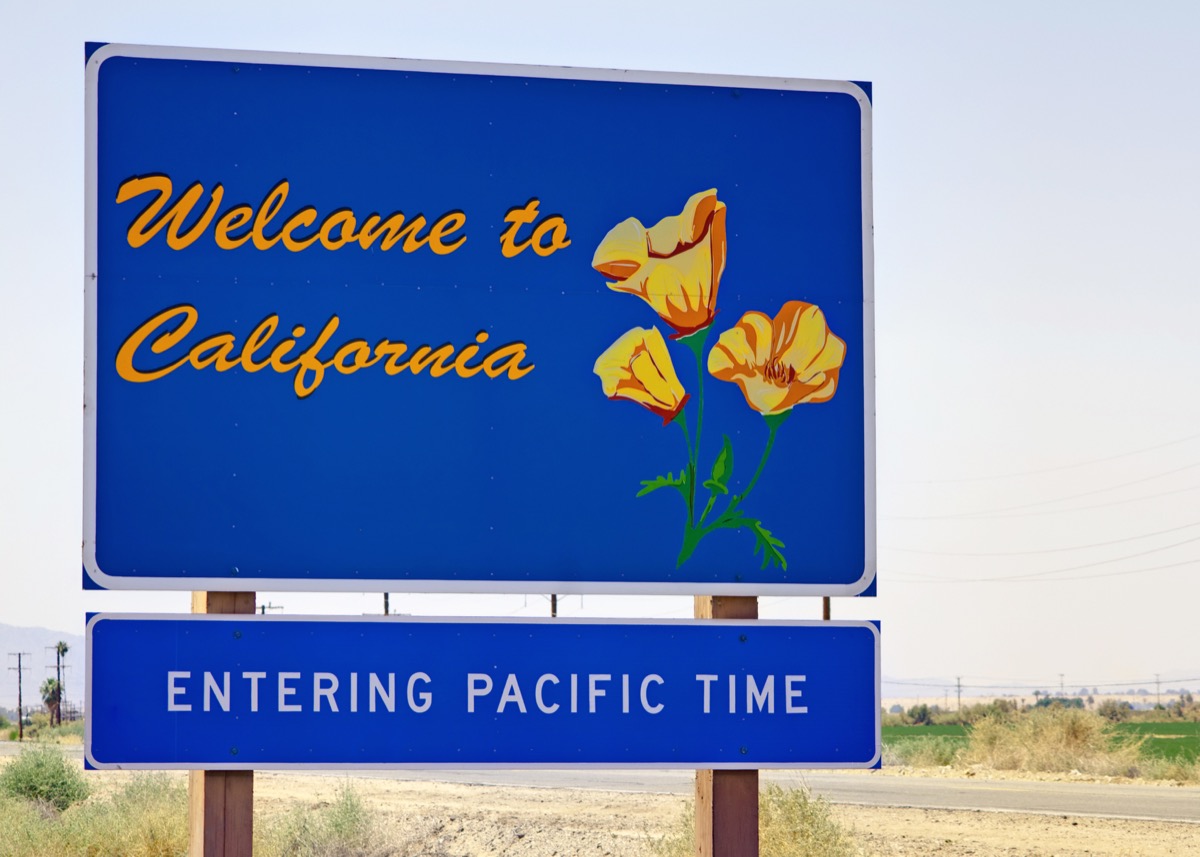
Whether they live in Northern California or Southern California, inland or on the coast, people who live in California have at least one thing in common with one another: They’re all Californians. If you’re feeling cheeky, you might also call them Californiacs, a term coined by writer Inez Haynes Irwin to describe people from California who can’t stop boasting about their home state. If you listen carefully, you might also hear the word Californios to describe Hispanic natives, as that was the moniker for Spanish-speaking colonists who settled California when it was part of Spain and Mexico.
6
Colorado
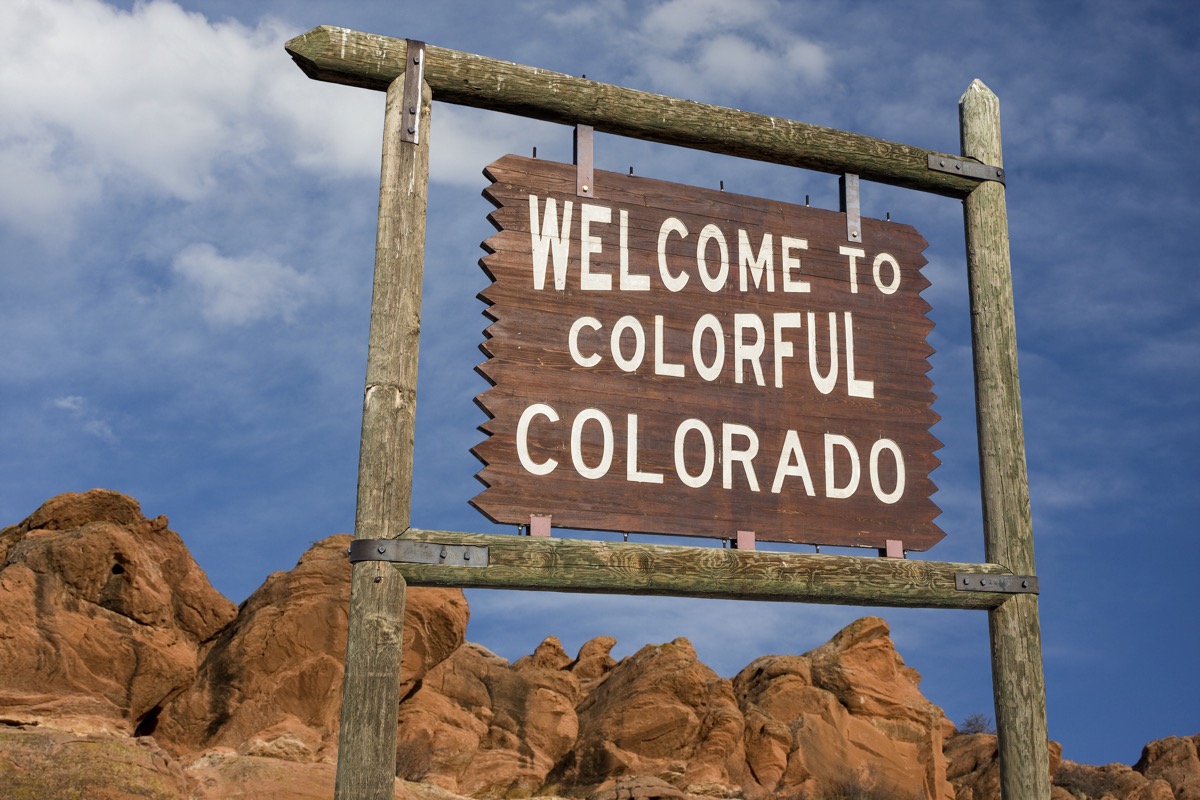
When you’re in Colorado, you might wonder if you’re surrounded by Coloradans or Coloradoans. Although there’s one aberrant local newspaper whose name might suggest otherwise—The Coloradoan, out of Fort Collins, Colorado—the answer most definitely is Coloradans. If you happen to drive north to Wyoming, you might also hear Coloradans called “greenies,” a deprecating word for tourists from Colorado, who are unmistakable thanks to their green license plates.
7
Connecticut
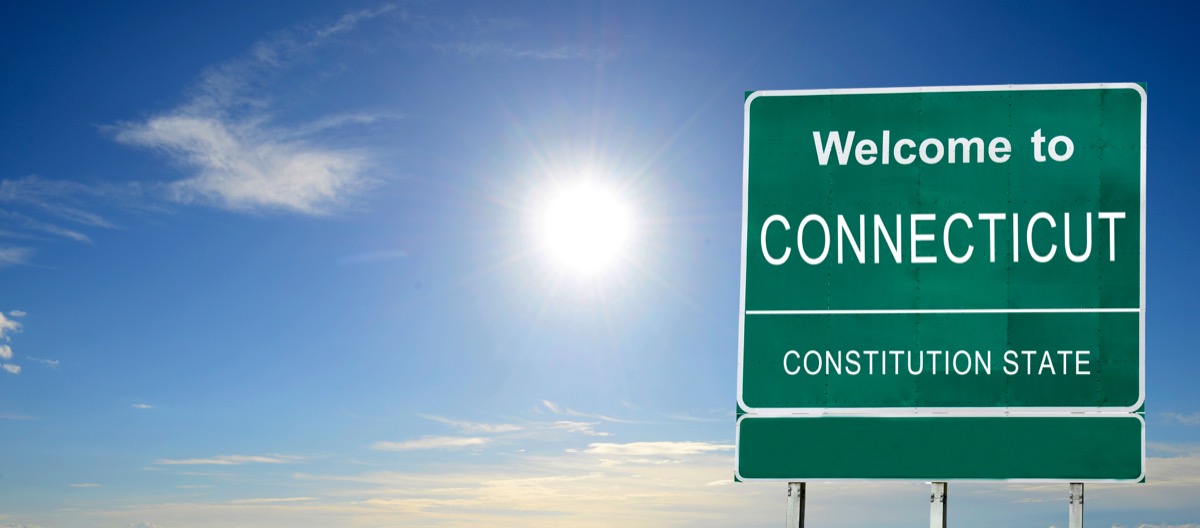
What do you call someone who lives in Connecticut? Because so many people from Connecticut work in New York City, you just might get away with the jocular retort, “New Yorkers!” In truth, however, people who reside in Connecticut are typically known as Connecticuters. Although some also have used the terms Connecticotian, Connecticution, Connectikite, and Connecticutensian, the only other name you’re likely to hear in practice is Nutmegger—which comes from Connecticut’s nickname as the Nutmeg State, itself derived from state lore about early residents who made a resourceful living selling wooden nutmegs.
8
Delaware
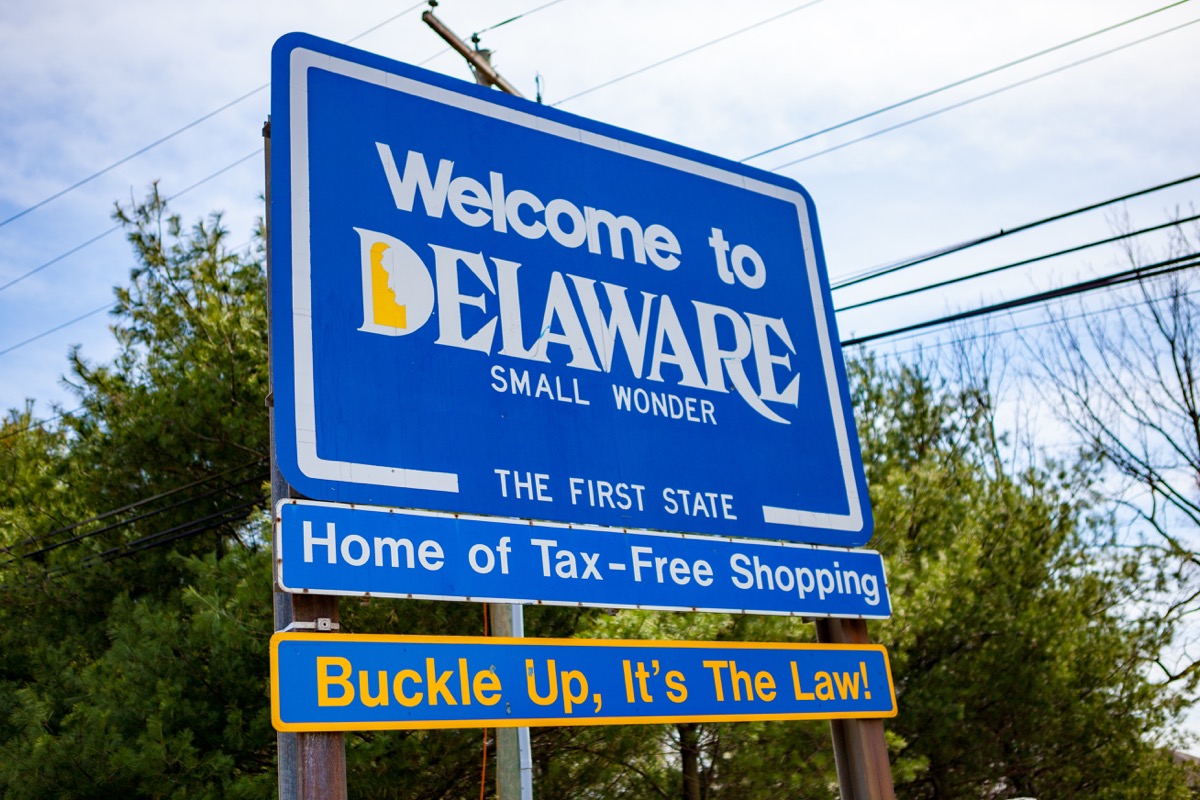
If you hail from Delaware—and fewer than 1 million people do—you’re called a Delawarean. The relatives just a few branches higher on your family tree, however, might have been called Muskrats, which was a common nickname for Delawareans in the 19th century due to the state’s large population of the beaver-like rodents. Although the nickname has mostly been retired, Delawareans still love to hunt muskrats—and at a few adventurous Delawarean restaurants, even eat them.
9
Florida
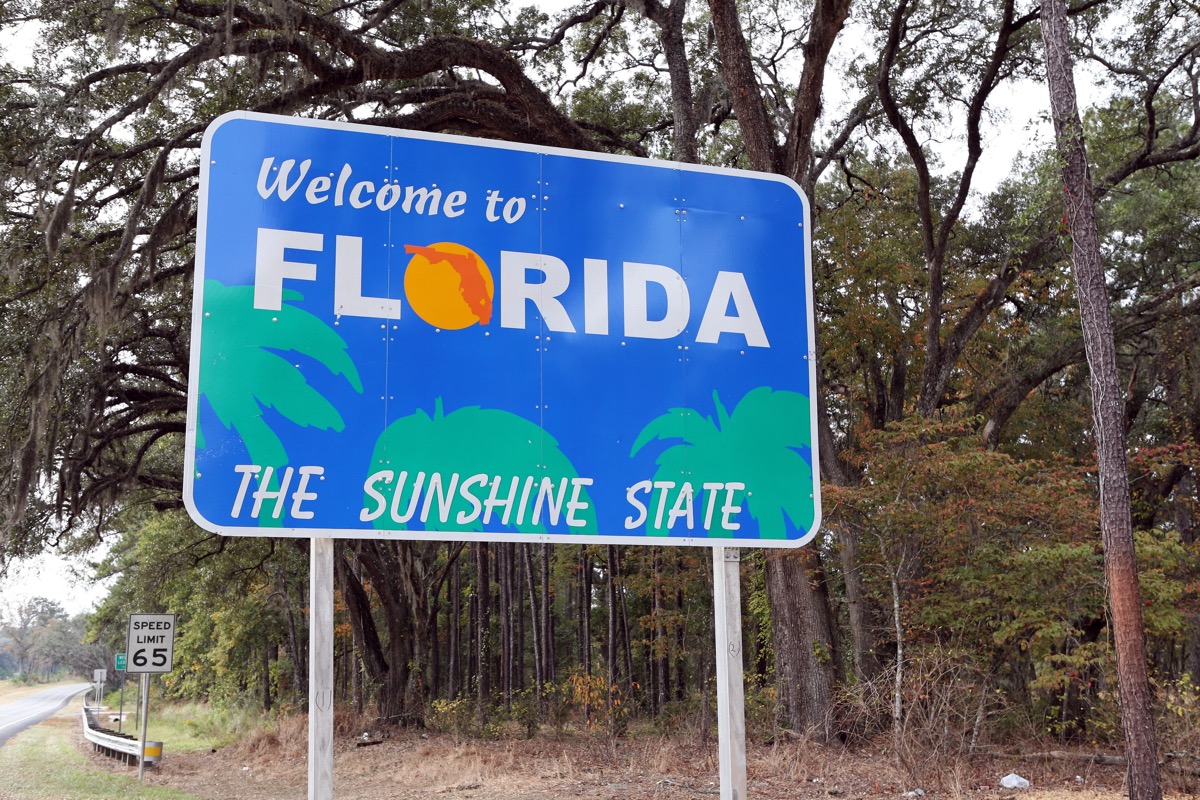
People from Florida usually call themselves Floridians—with an “i”—instead of Floridans, with no “i.” Technically, though, both are correct. Just look to one of the state’s biggest industries: tourism. Not only is there Disney’s Grand Floridian Resort & Spa in Orlando, but there’s also the Floridan Palace in Tampa. Some people insist that Floridian describes anyone who lives in Florida, while Floridan describes people who are “native” or “generational” Floridians. Finally, you should know that many Floridians—specifically, those who only live there only in winter—bear an altogether different nickname, which can be used either affectionately or pejoratively: “snowbirds.”
10
Georgia
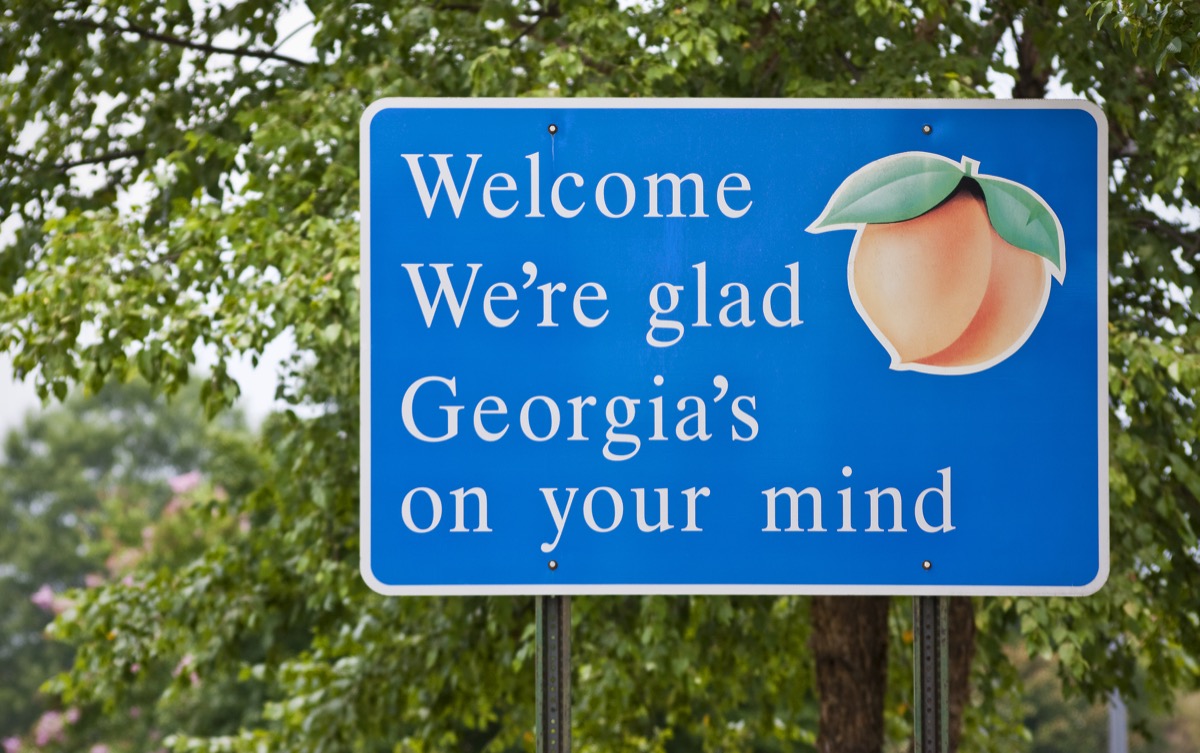
As you might have guessed, people from Georgia are known as Georgians. Once upon a time, however, you might have affectionately called your Georgian friends—including former President Jimmy Carter—Goobers, which isn’t the insult you might think it is. As it turns out, “goober” is an old-fashioned word for peanut, and the peanut (not the peach) is Georgia’s official state crop. So when Americans called Confederate soldiers from Georgia “goober grabbers” during the Civil War, they weren’t being defamatory. Rather, they were being literal: Georgia militiamen really did love peanuts!
11
Hawaii
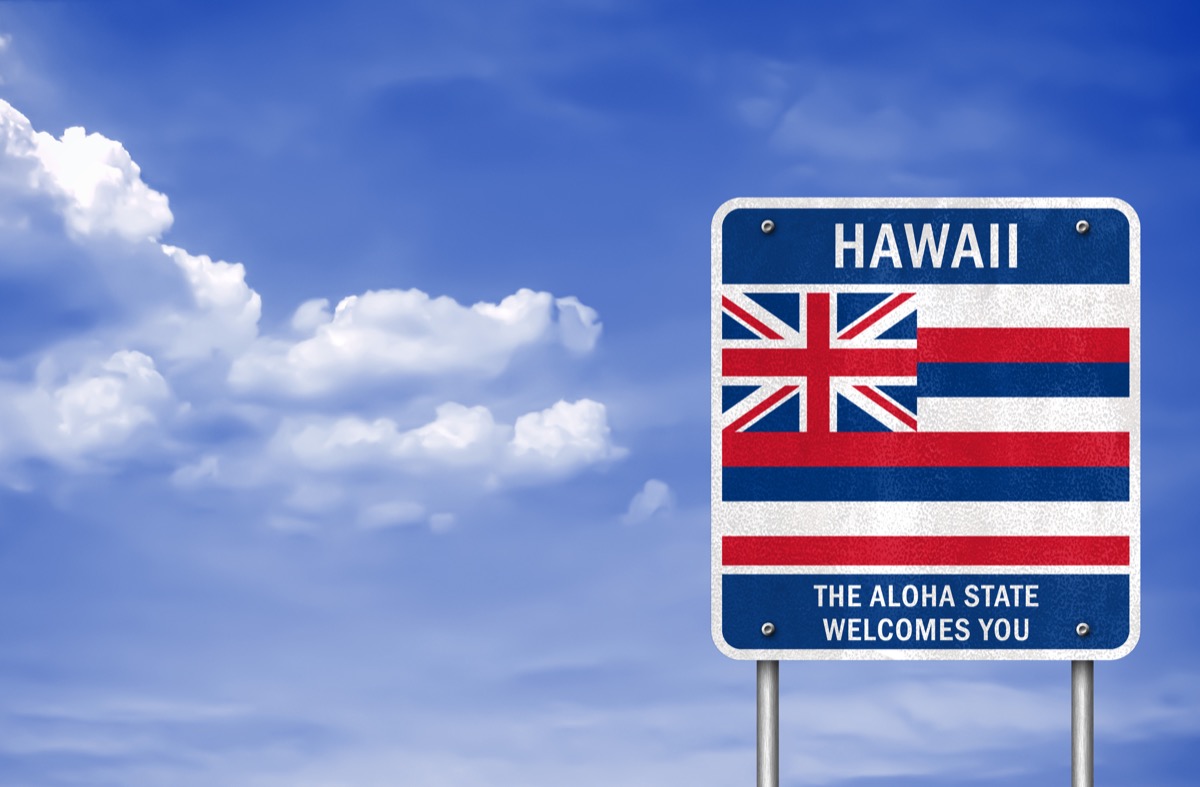
Demonyms in Hawaii are a lot more nuanced than outsiders might understand. Before Hawaii was a state, Hawaiian was the word for the native people who inhabited the islands. Today, therefore, most people on the islands reserve the word for people of native Hawaiian ethnicity and descent. The term you should be using is “Hawaii residents.” You can also call residents Kama’aina (pronounced comma-eye-nah), or just “locals,” which is how most people refer to residents in everyday conversation.
12
Idaho
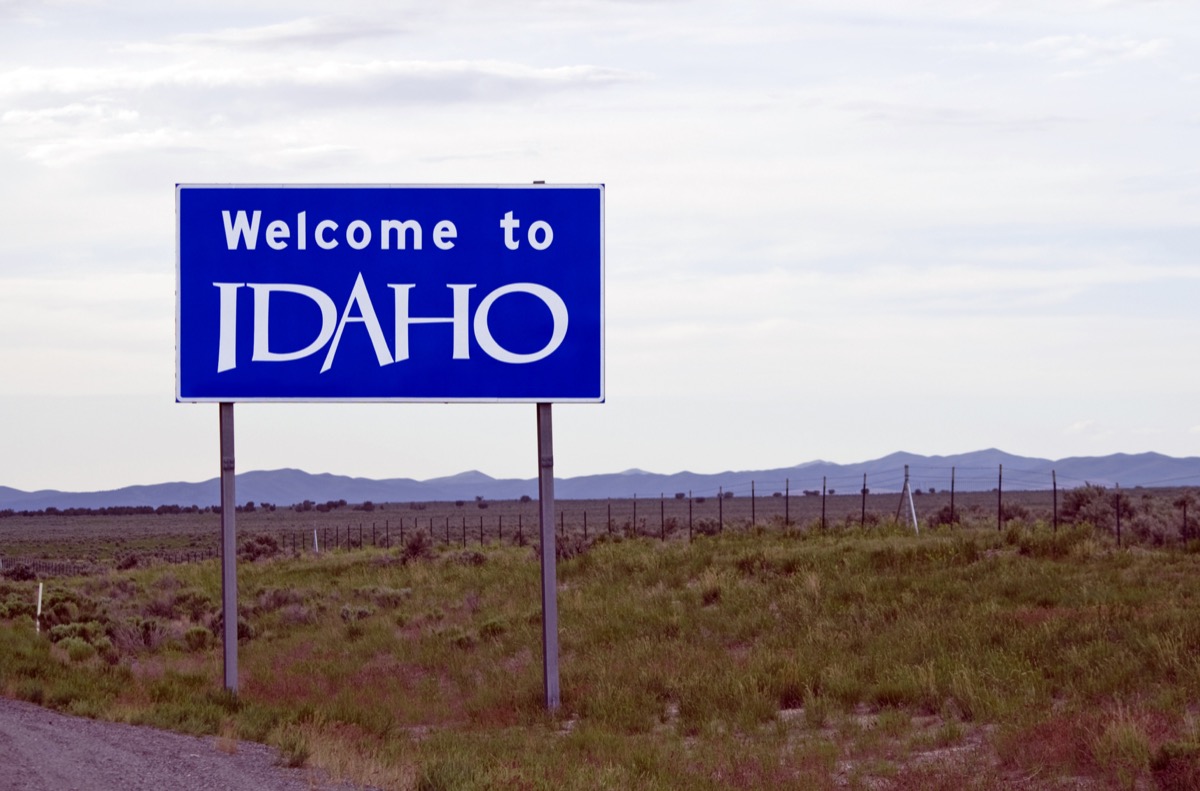
Although its nickname is the “Gem State,” Idaho is best known for potatoes. The state’s residents, meanwhile, are simply known as Idahoans.
13
Illinois
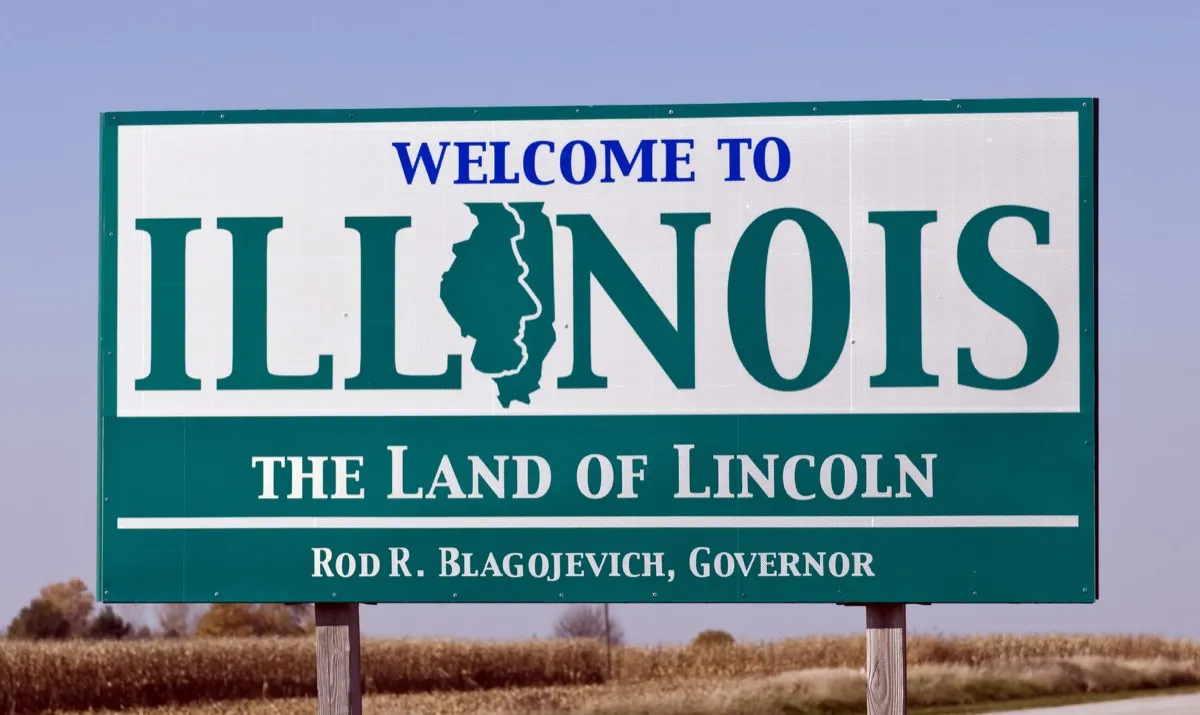
Although the vast majority of people in Illinois live in its largest city, Chicago, not all people from Illinois are called Chicagoans. They are, however, all called Illinoisans (pronounced “Ill-i-noy-ans,” with no “s”).
Once upon a time, they also were called Suckers—which doesn’t mean what you think it does. Although the name’s origins are widely debated across the state, perhaps the most prevalent theory comes from former Gov. Thomas Ford. Although he died in 1850, he wrote a history of the state that was posthumously published in 1854. In it, he describes how lead miners from southern Illinois used to migrate north to Galena, Illinois, to work in the spring and summer before returning south in the fall and winter; their migratory patterns along the Mississippi river mirrored those of the sucker fish that inhabited the same waters. Hence the name Suckers, which subsequently stuck to residents across the so-called Land of Lincoln.
Although you’ll no longer hear the name today, you might hear a different word if you’re north of the Illinois border: Flatlander, a waggish barb that people from Wisconsin use to poke fun at their neighbors to the south.
14
Indiana
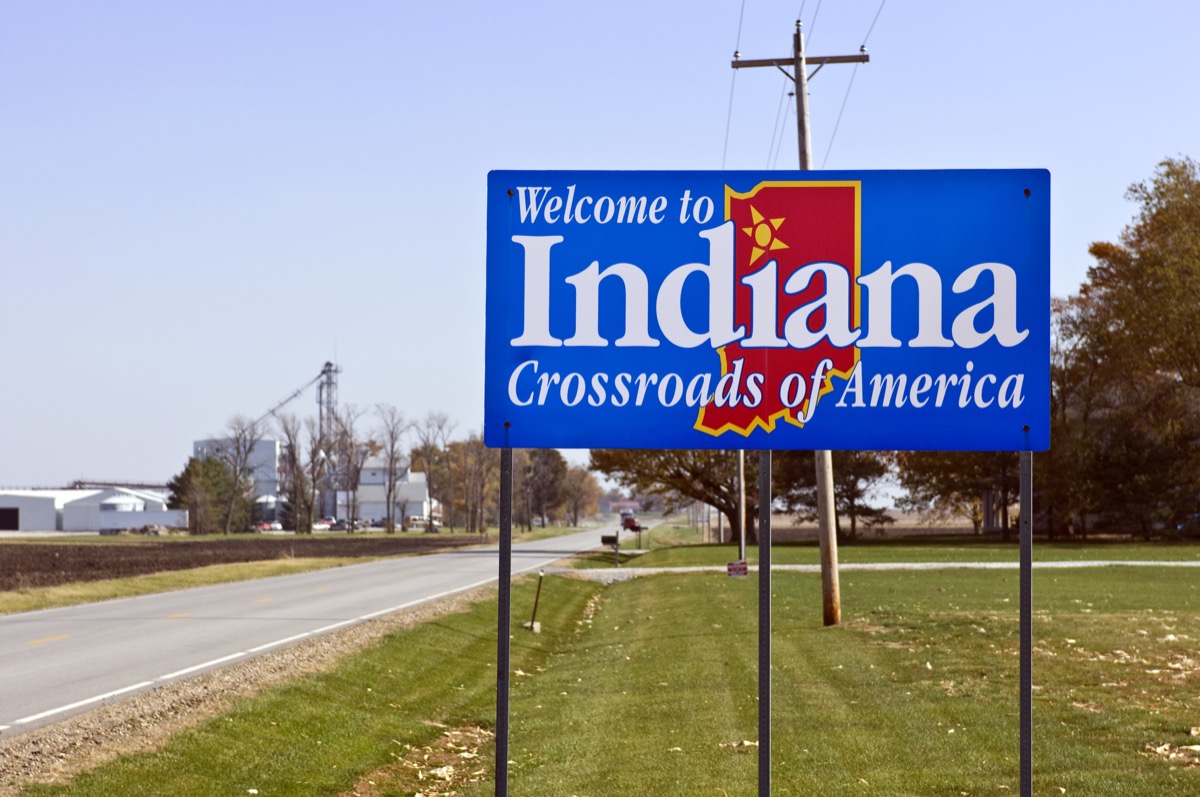
Whatever you do, don’t call Indiana natives Indianans or Indianians. The correct word is Hoosiers, thank you very much. Although no one is sure exactly where it came from, the term has been used in Indiana since at least 1833, when Indiana poet John Finley wrote a poem titled “The Hoosier’s Nest.” It’s widely thought to come from the Old English word “hoozer,” which means “high hills” and was used in the 18th century to describe the rough, lawless highlanders of the southeast United States. When Southerners subsequently settled in Indiana, it’s presumed they brought the word—and the independent, frontier-minded spirit it connotes—with them.
15
Iowa
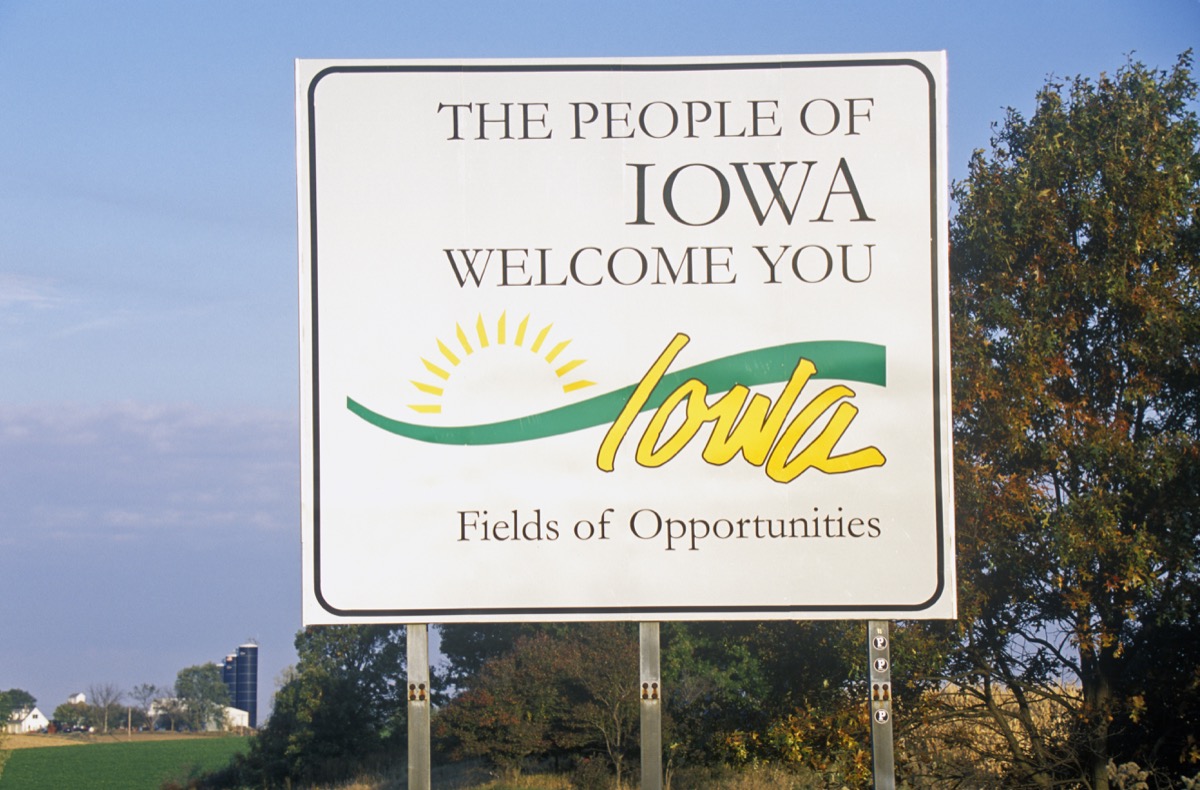
Iowa natives typically are called Iowans, although you might also hear them called Hawkeyes. That’s because Iowa is known as the Hawkeye State, a name given to it in 1838 by Iowa lawyer David Rorer. An avid reader, he suggested the sobriquet after reading James Fenimore Cooper’s The Last of the Mohicans. In the novel, one of the characters, a white frontier scout and trapper, is given the name Hawkeye by Native Americans because of his unfailing sight. If you’re in a neighboring state, like Nebraska, there’s one more (derogatory) word you might hear to describe the people of Iowa: Iowegians.
16
Kansas
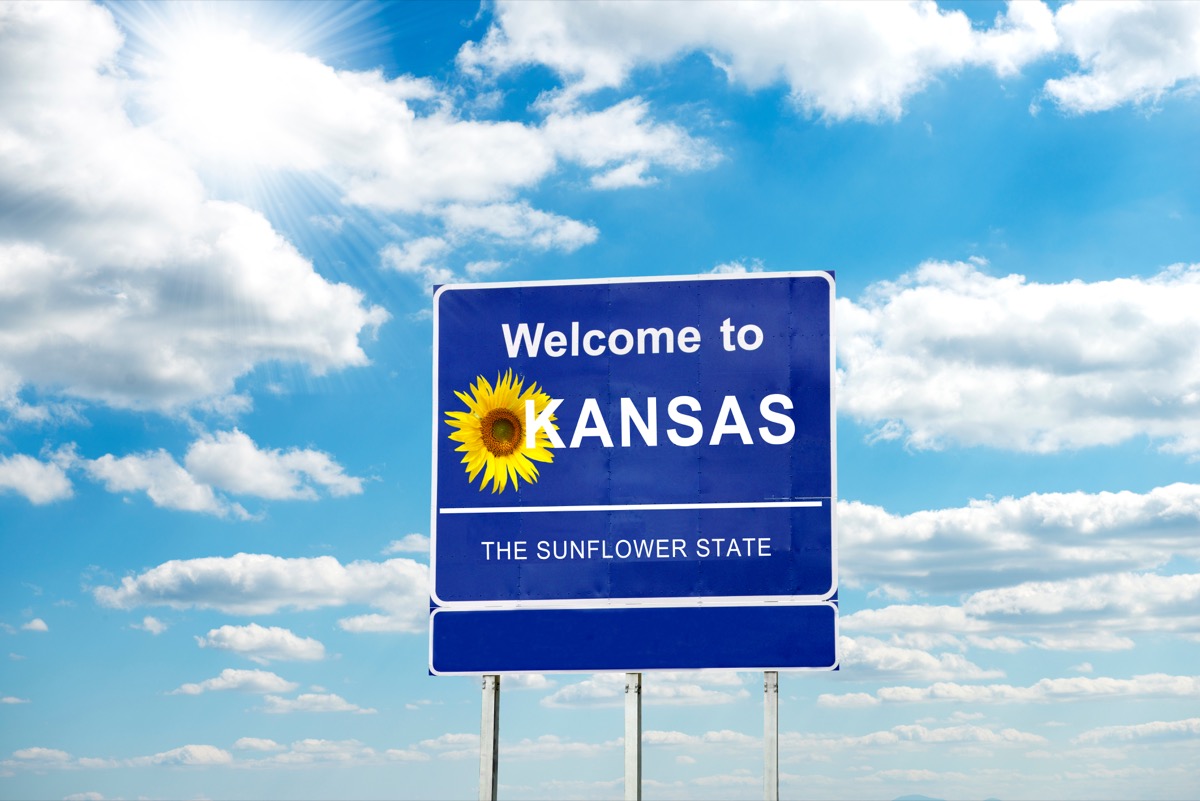
If you’re not in Kansas anymore, your name might be Dorothy. But if you’re still in Kansas? Well, then you’re called either a Kansan or a Jayhawk. Although it’s not clear where the latter originated, it’s thought to be a combination of “blue jay” and “Sparrow hawk,” two birds commonly found in the Missouri Valley. One is known to be noisy and combative, the other to be genteel and courageous. During the 1850s, Kansas was known for bands of robbers who committed acts of violence in order to demonstrate their opposition to slavery; they were known as “jayhawkers” because they could be seen either as heroes or as villains, depending on one’s views about slavery. The name stuck to Union soldiers from Kansas when the Civil War broke out, and to all Kansans thereafter.
17
Kentucky
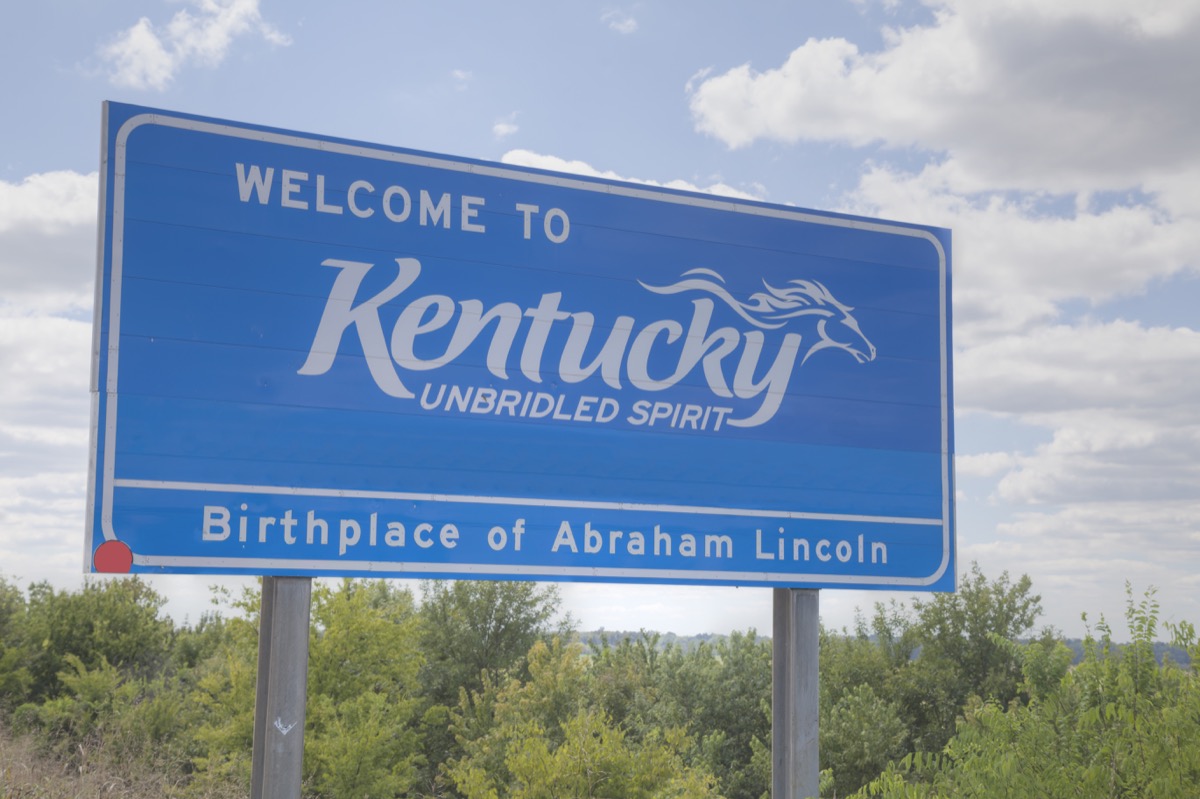
Daniel Boone. Muhammad Ali. George Clooney. Abraham Lincoln. These are just a few of the famous people who hail from Kentucky—and all of them share the demonym Kentuckian.
18
Louisiana
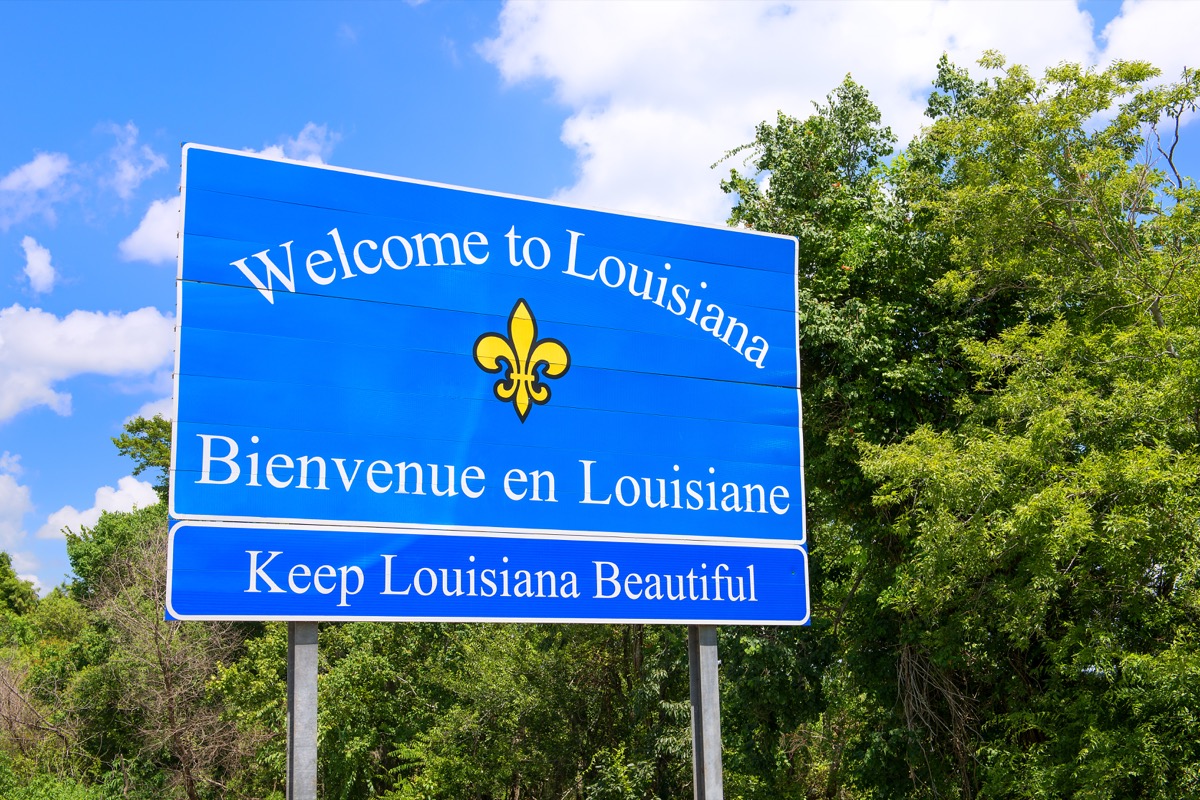
When you’re from Louisiana, you’re either a Louisianan or a Louisianian. Both are correct, although the latter is what the government officially recognizes. What you really need to make sure you get right are Cajun and Creole, both of which describe ethnic groups that are common to South Louisiana, in particular. Cajun generally refers to people who are descended from French-Canadians who moved to Louisiana from Nova Scotia in the 1700s. Creole, on the other hand, typically denotes both people of European descent who were born in the French and Spanish colonies, as well as people of mixed European and African ancestry.
19
Maine
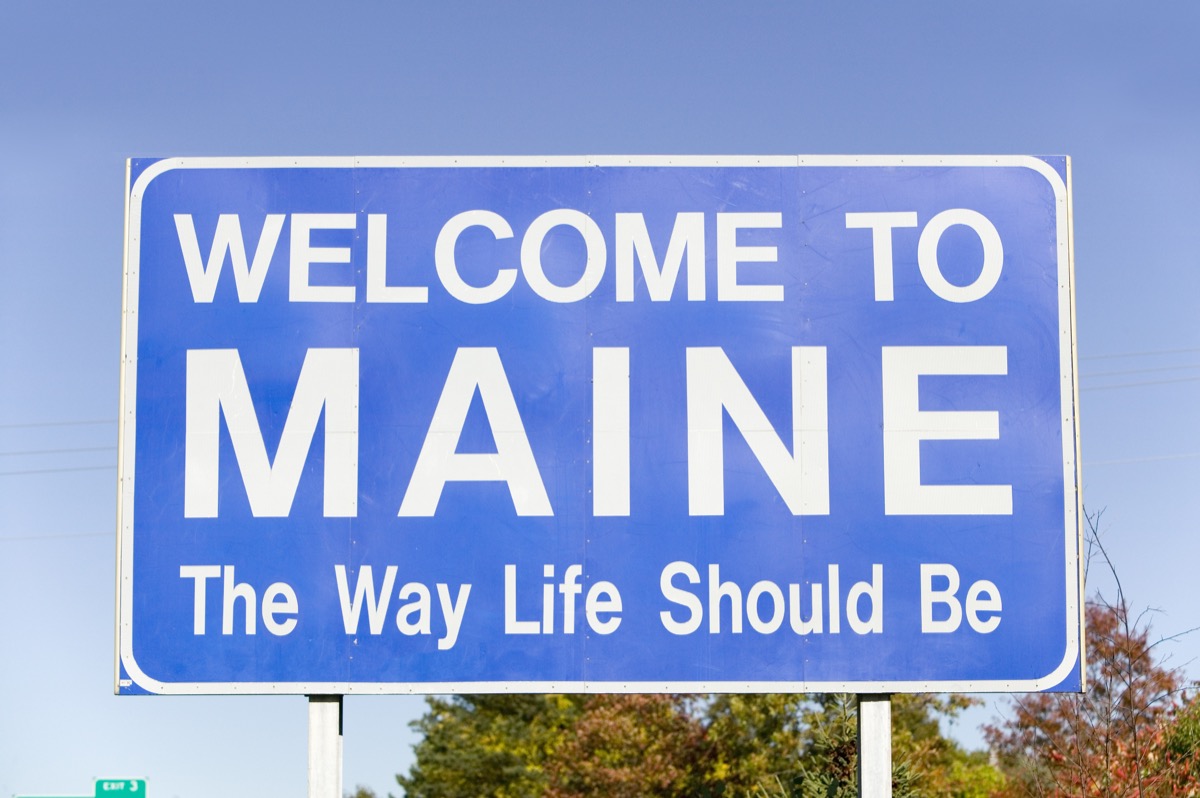
In Maine, you can distinguish real locals not by what they’re called—Mainers—but by how they pronounce it: Maine-ahs. In the neighboring states of Vermont and Massachusetts, you probably know Maine folks by another (pejorative) name: Mainiacs.
20
Maryland
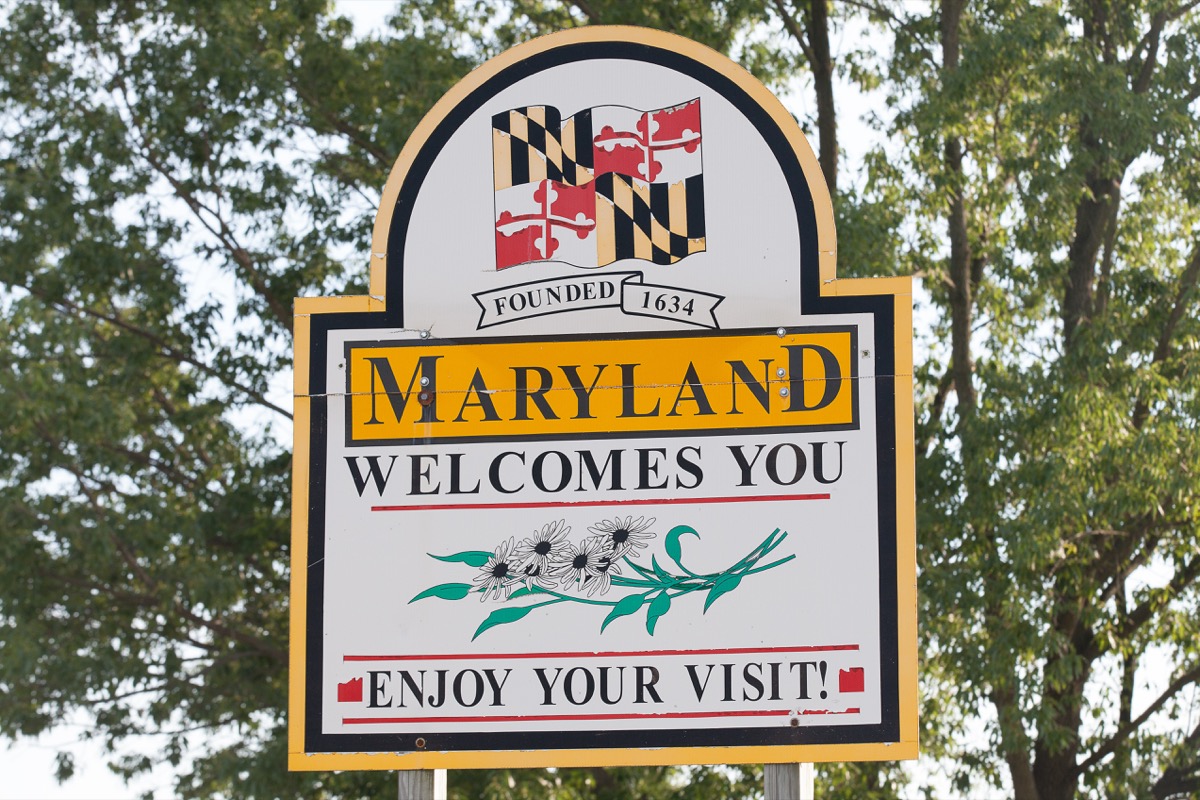
Maryland is sometimes called “America in Miniature.” But that doesn’t mean you should call people from Maryland American-ettes. Marylanders will do just fine.
21
Massachusetts
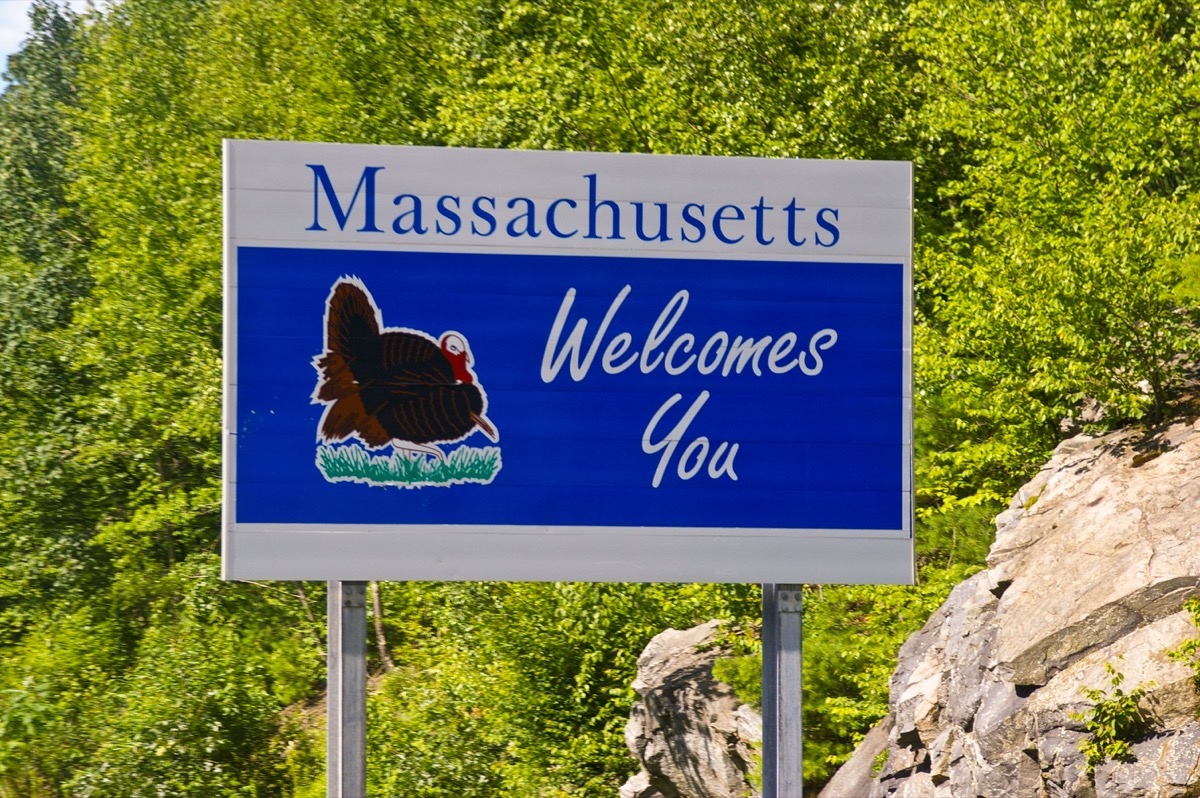
According to the U.S. government, the recognized demonym for someone from Massachusetts is Massachusettsan. If you ask the natives, however, that word is wicked bogus. Instead, the proper term is Bay Stater, which was actually codified into Massachusetts law in 1990 as “the official designation of citizens of the commonwealth.”
22
Michigan
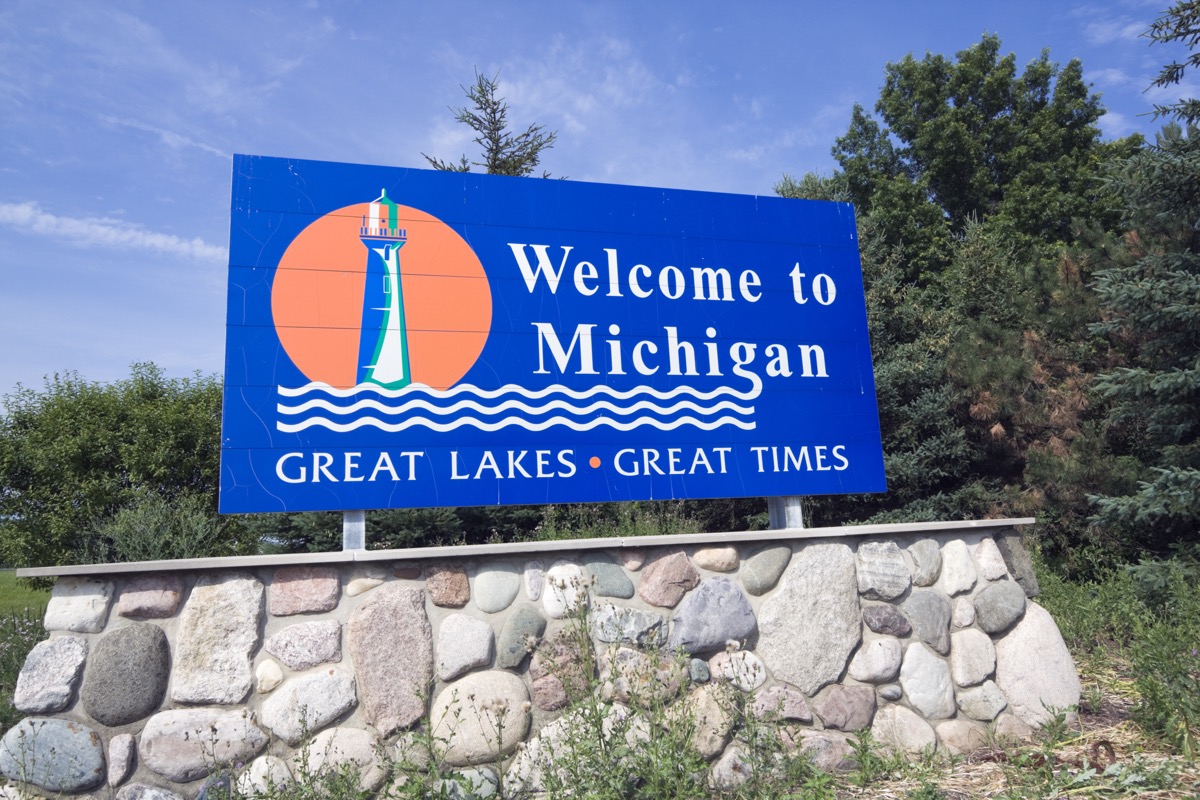
The people of Michigan are split—literally, thanks to Lake Michigan, which separates the Upper Peninsula from the Lower Peninsula. It’s not just geography that divides Michigan, however. It’s also linguistics, as locals are torn about what they should call themselves. On one side is the term Michigander, which was coined by Abraham Lincoln to insult Michigan Gov. Lewis Cass, whom Lincoln thought was a “goose” for riding the political coattails of President Andrew Jackson. Although some people in Michigan have come to embrace the word, others remain offended by the insult and therefore reject it. Those people typically prefer to call themselves Michiganians, the demonym recognized by the U.S. government.
One thing both camps can agree on: The proper word for someone who resides in Michigan’s Upper Peninsula is Yooper.
23
Minnesota
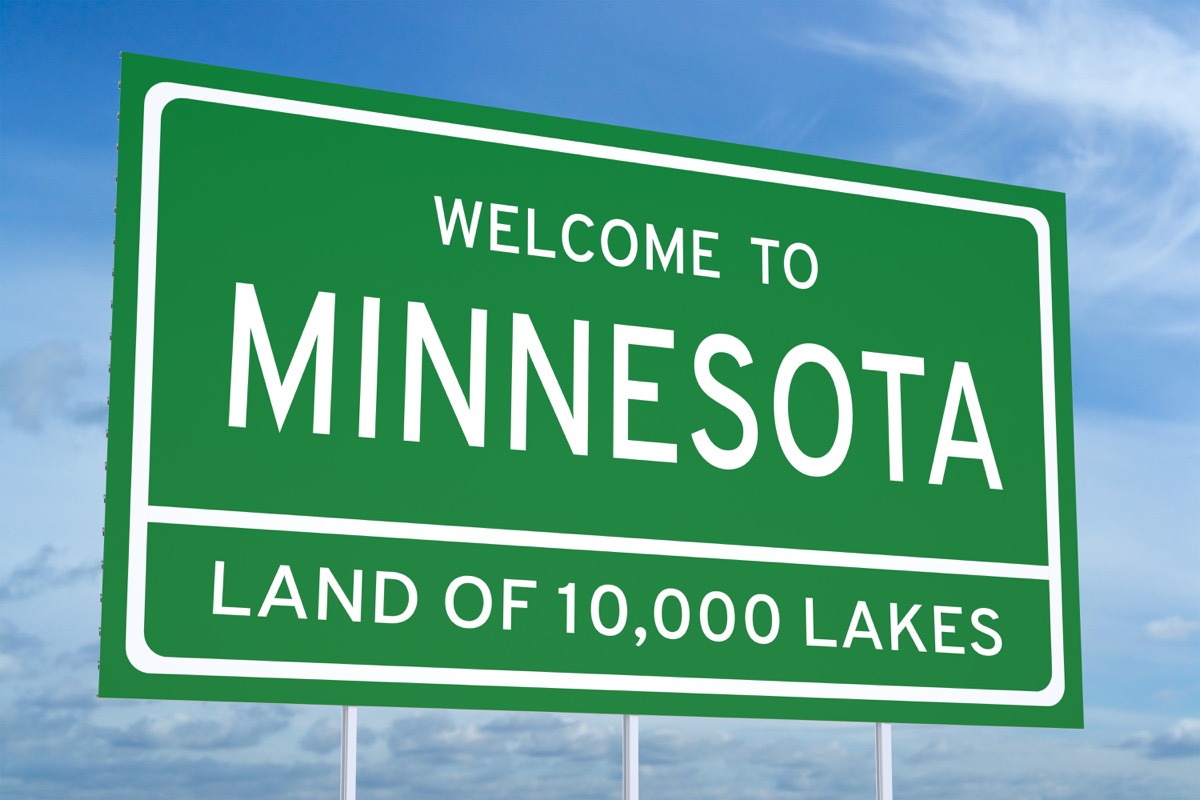
People who live in Minnesota love it because life there tends to be simpler. It makes sense, then, that folks there go by a simple name: Minnesotans. Looking for an insulting nickname to lob at your Minnesota friends? There really isn’t one. People there are just too friendly, apparently.
24
Mississippi

What’s longer and has even more consonants than the word “Mississippi”? Easy: The word Mississippian, which is what Mississippi natives call themselves.
25
Missouri
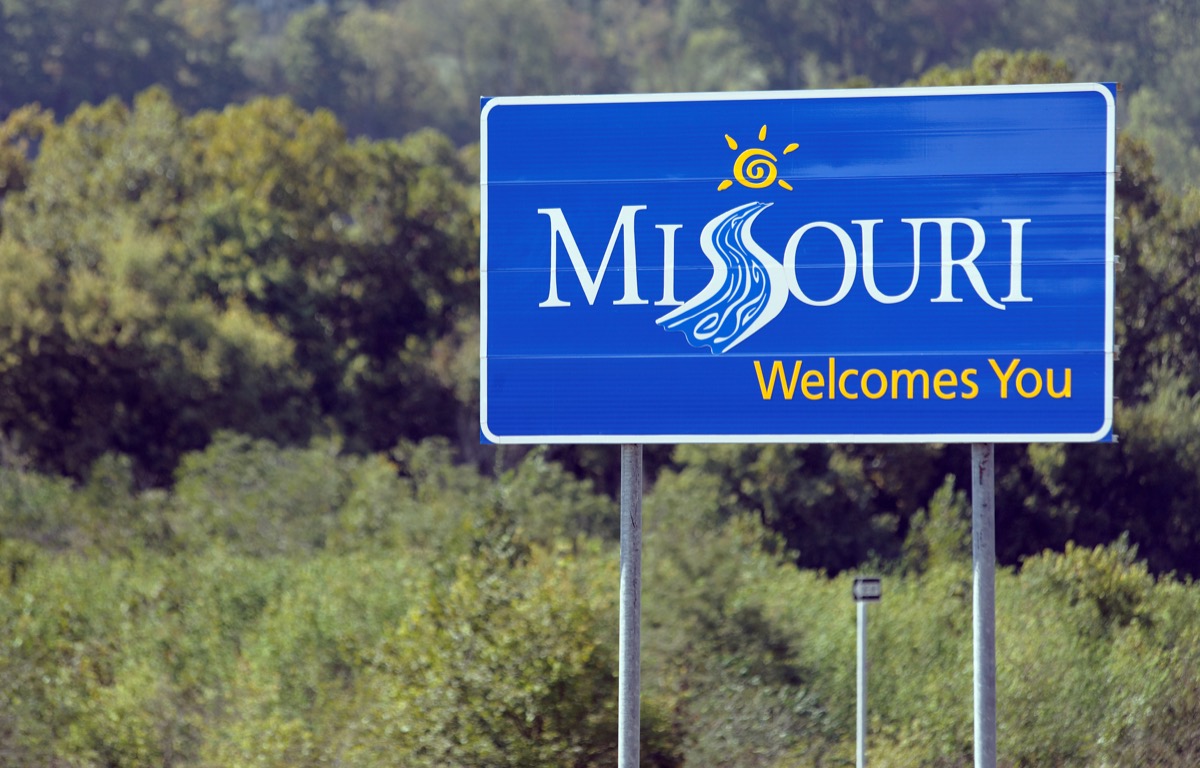
Although there’s only one word for people from Missouri—Missourians—there’s two ways of saying it: People who pronounce Missouri as “Missour-ee” say “Missour-ee-un” while people who pronounce Missouri as “Missour-uh” say “Missour-uhn.” Which one is correct? Both. Unfortunately, so is another nickname that was bestowed on Missourians in the 19th century: Pukes. The term comes from Missouri’s neighbor to the north, Illinois, which had seasonal lead mines that attracted Missouri workers in droves. So many Missourians came that Illinoisans felt as though Missouri had “vomited” its citizens into its mines. Hence, the nickname.
26
Montana
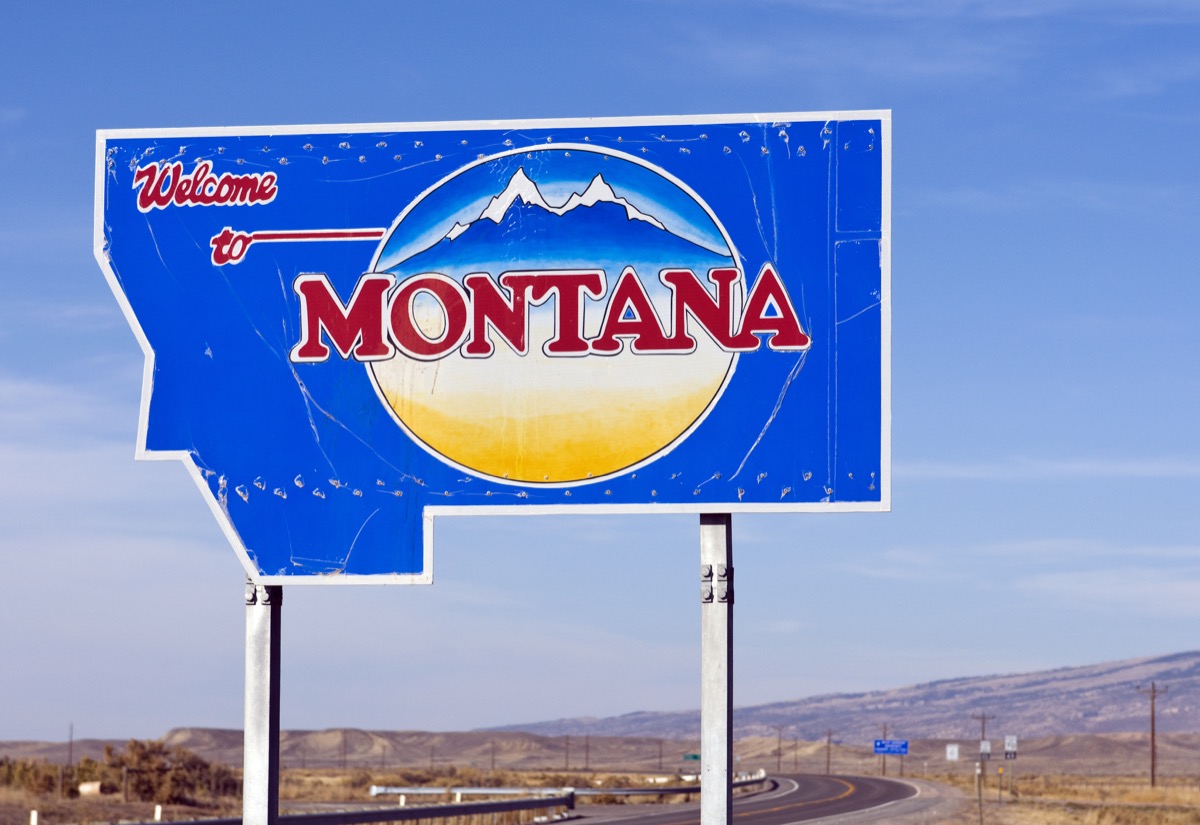
You might expect a state the size of Montana to have as many nicknames for its citizens as it does square miles of open sky. But Big Sky Country has just one name for its people: Montanans.
Nebraska
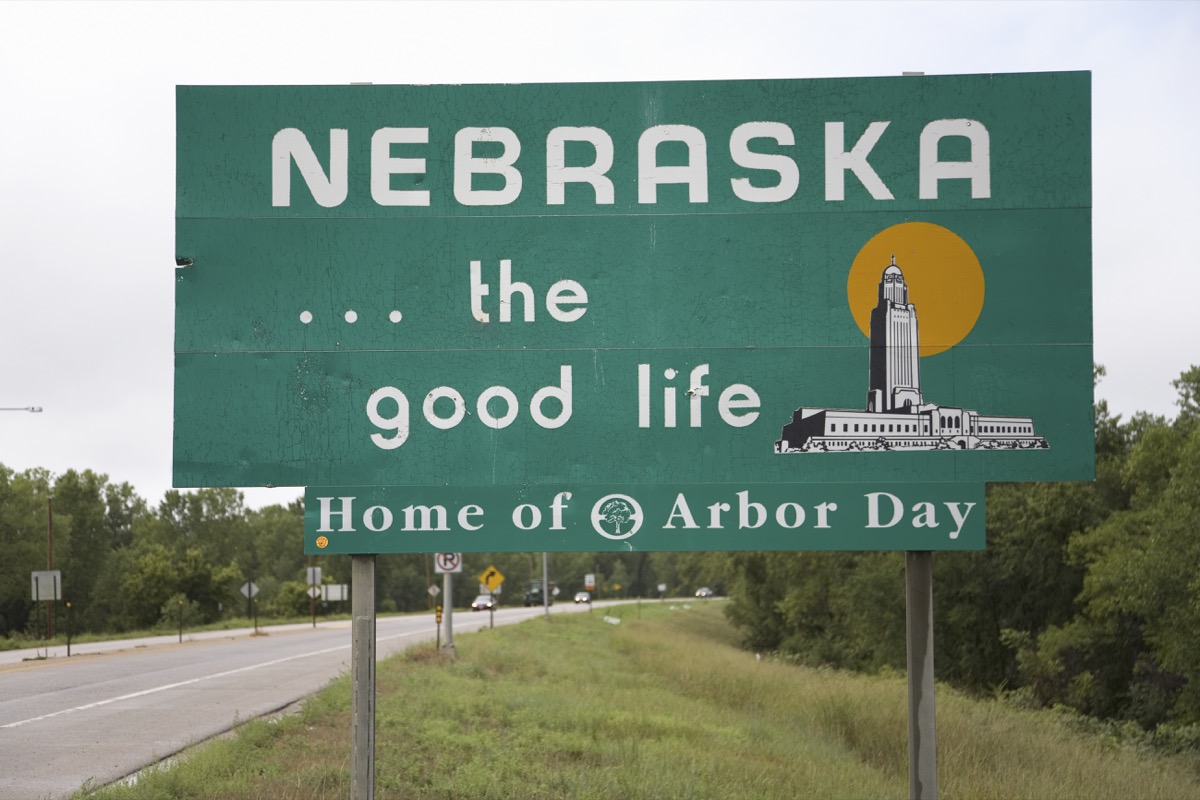
Anyone who’s driven through Nebraska on a road trip knows that its scenery isn’t very interesting. Its demonyms, however? That’s another story. The most common name for Nebraska natives, naturally, is Nebraskans. But that’s just one name among many. Way back in 1860, for instance, Nebraskans were called Squatters because they settled the land there before it had been formally surveyed.
Later, Nebraskans received another unflattering nickname: Bugeaters, which was likely originated by someone from the East Coast who visited Nebraska during the 1870s, when a disastrous grasshopper plague ruined the state’s crops. Because bugs had eaten all the grain, the visitor joked, Nebraskans would have to resort to eating the bugs. The name Bugeaters stuck and was even an early name for the University of Nebraska’s beloved football team.
Nebraskans finally traded up in 1900 when a local sportswriter began calling the Nebraska Bugeaters the Cornhuskers; both the football team and Nebraskans at large subsequently embraced the name, which trades on the state’s sizable corn harvest.
28
Nevada
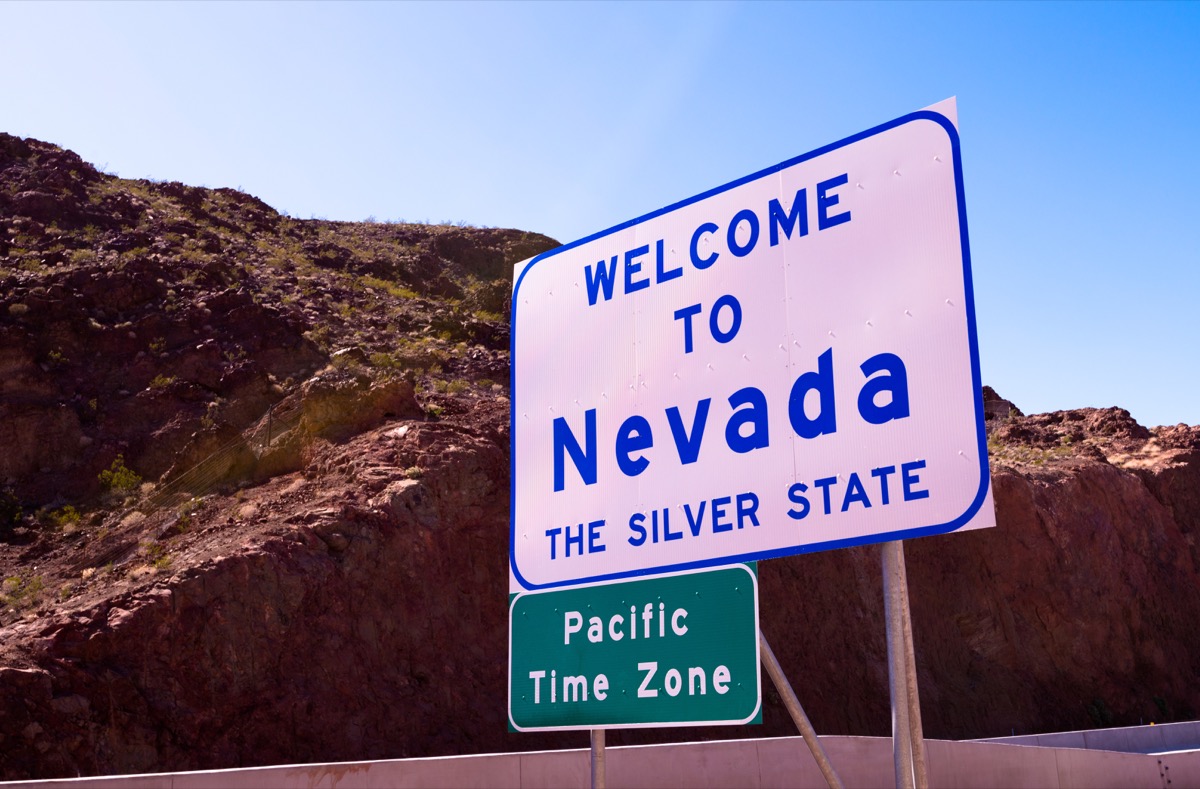
Like many other states, Nevada natives can’t quite decide what they want to be called. Some say Nevadan, others Nevadian. The tiebreaker? The state’s largest newspapers, the Las Vegas Sun and the Las Vegas Review-Journal, both call their readers Nevadans. (And that’s what the U.S. government calls Nevada state residents as well.)
29
New Hampshire
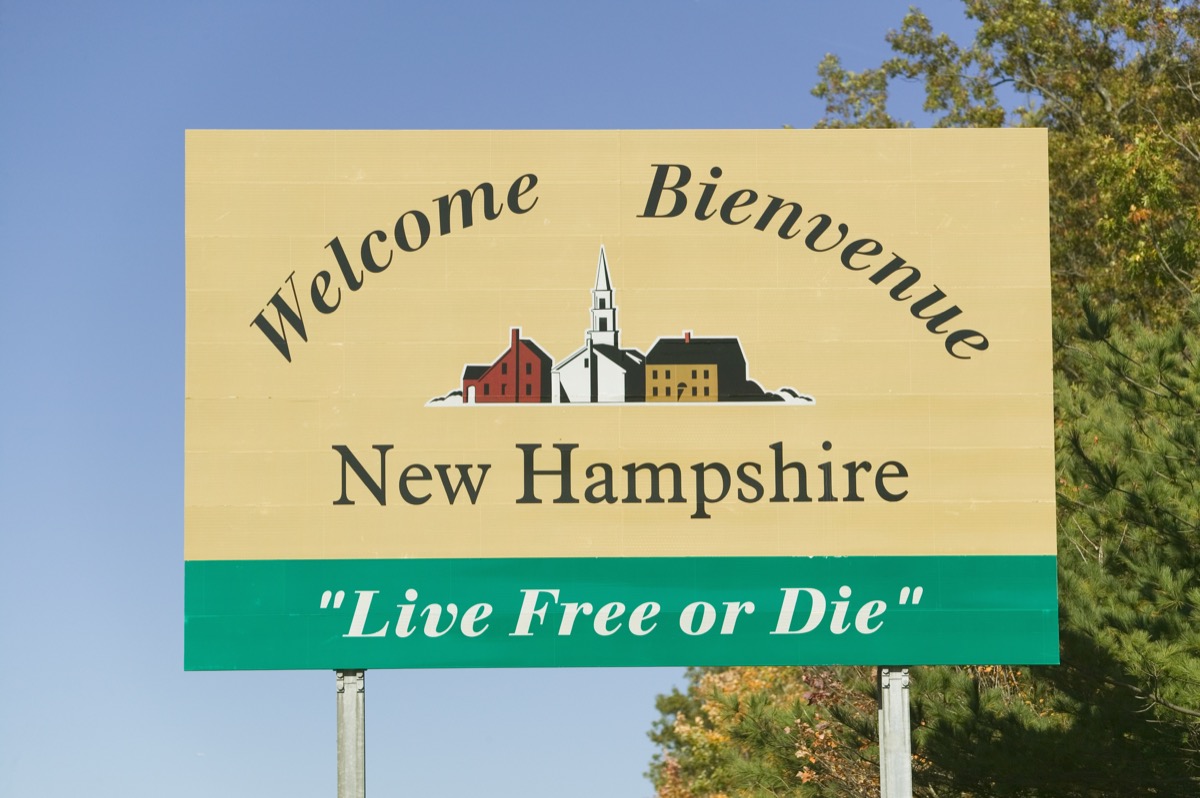
Although it’s a mouthful, people in New Hampshire technically are known as New Hampshirites. If you ask natives, however, they tend to prefer the more casual Granite Stater, a derivative of New Hampshire’s nickname, The Granite State, which celebrates the state’s numerous granite formations and quarries (and, figuratively speaking, its loyalty to tradition).
30
New Jersey
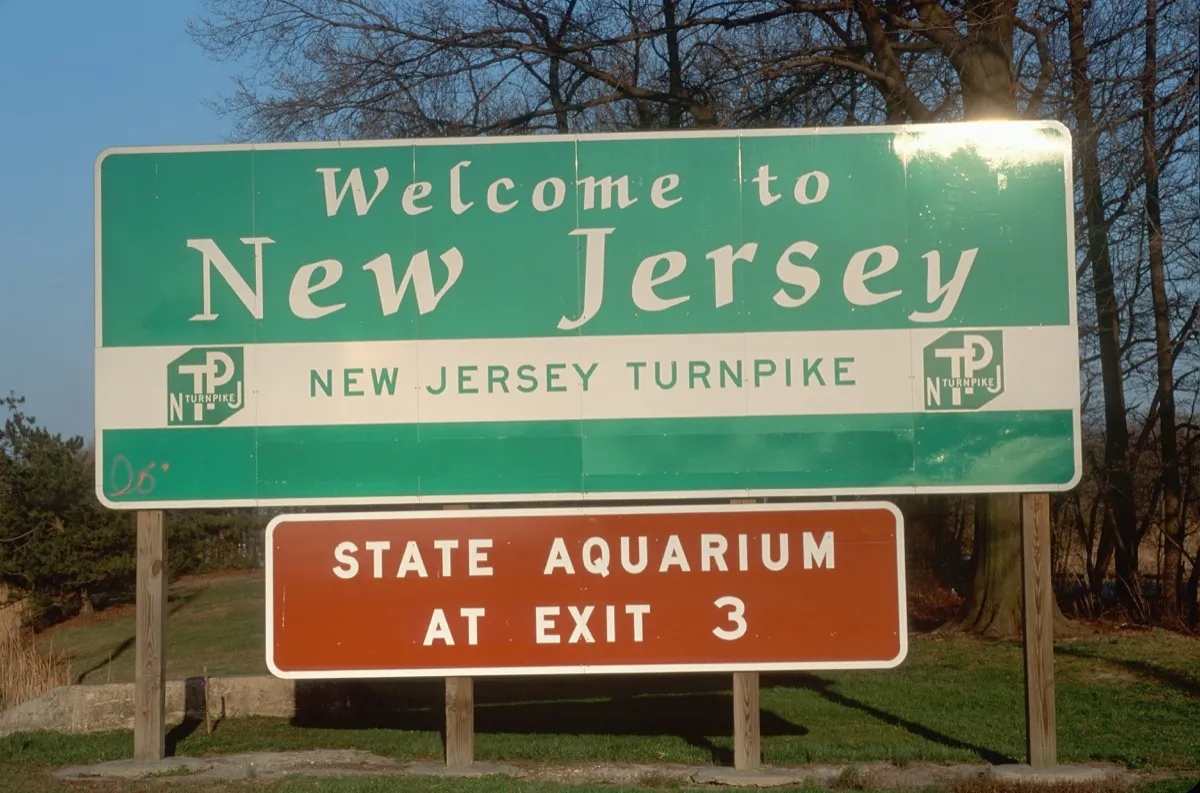
What do you call people from New Jersey? It depends who you ask. If you ask New Yorkers, for example, expect an expletive or two. But never mind them. The best people to ask are, of course, New Jersey natives themselves, most of who will tell you that they identify as New Jerseyans (although a few might say, instead, that they’re New Jerseyites). Some people, like George Washington, have even called New Jerseyans simply Jerseys. Just don’t call them Joiseys. Ever.
31
New Mexico
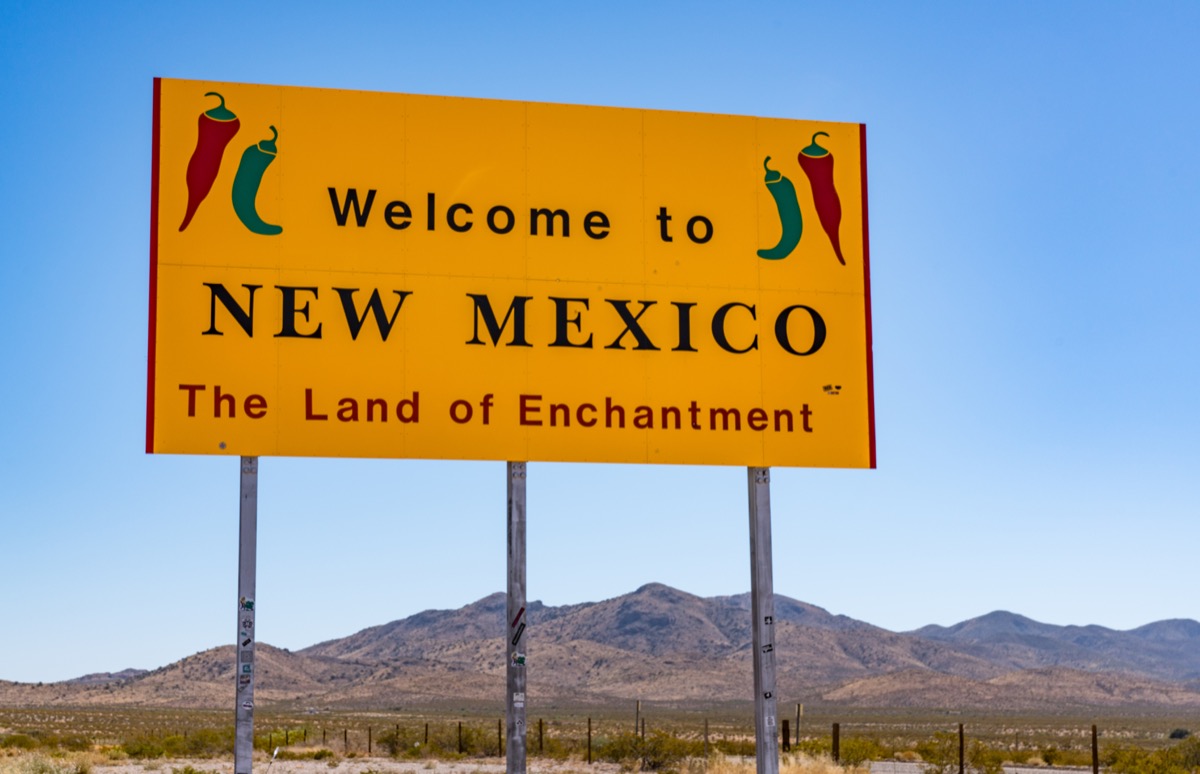
People from Mexico are called Mexicans, so it would stand to reason that people from New Mexico would be called New Mexicans, right? Right. For most New Mexicans, however, the similarities with Mexico stop there. One exception is the local population that’s descended from early Spanish settlers who migrated to the region from the land that would one day be known as Mexico. Individuals who belong to this distinguished culture typically refer to themselves either as Nuevomexicanos or Hispanos.
32
New York
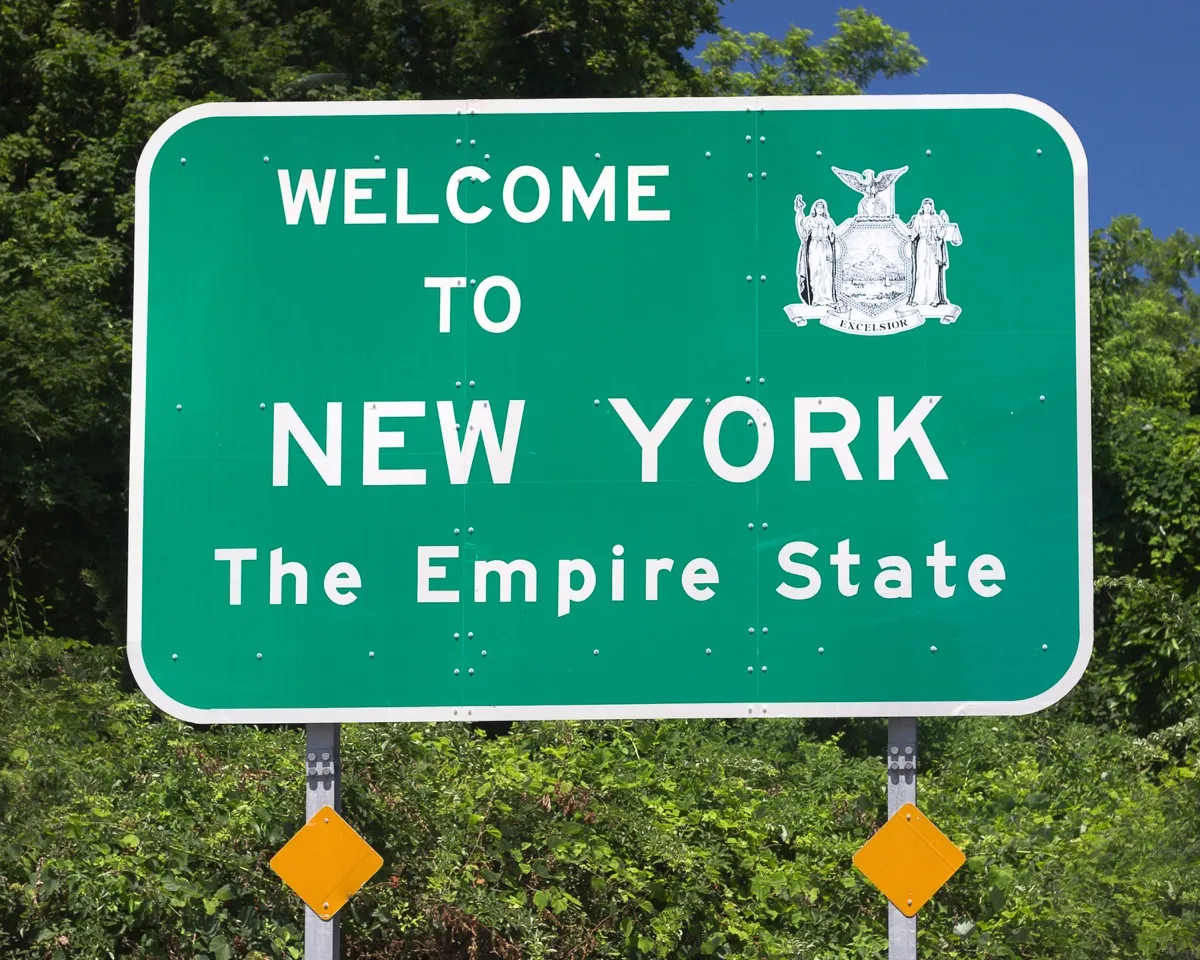
On name alone, it’s easy to confuse New York City with New York State. Whether you live in the city or upstate, however, you’re still a New Yorker. Although you probably won’t hear it much these days, New Yorkers also are known as Knickerbockers, which comes from the name for the pants that were worn by New York’s early Dutch settlers. Hence the name of the New York Knicks basketball team!
33
North Carolina

There may be two Carolinas, but there’s only one North Carolina. If you’re from there, you’re a North Carolinian—although you might also identify as a Tar Heel. Which is what, you might wonder? Although historians are not 100 percent certain of its origins, the name Tar Heel is thought to come from North Carolina’s industrial roots. In the 18th and 19th centuries, the state was a major producer of naval supplies—including turpentine distilled from the sticky rosin of pine trees and tar made from burned pine boughs. Because the humble workers who performed these tasks often went barefoot in the summer, collecting rosin and tar on their hoofs as they worked, they were called “rosin heels” or “tar heels.” Over time, what began as an insult lobbed at working-class North Carolinians became a beloved symbol of state pride.
34
North Dakota
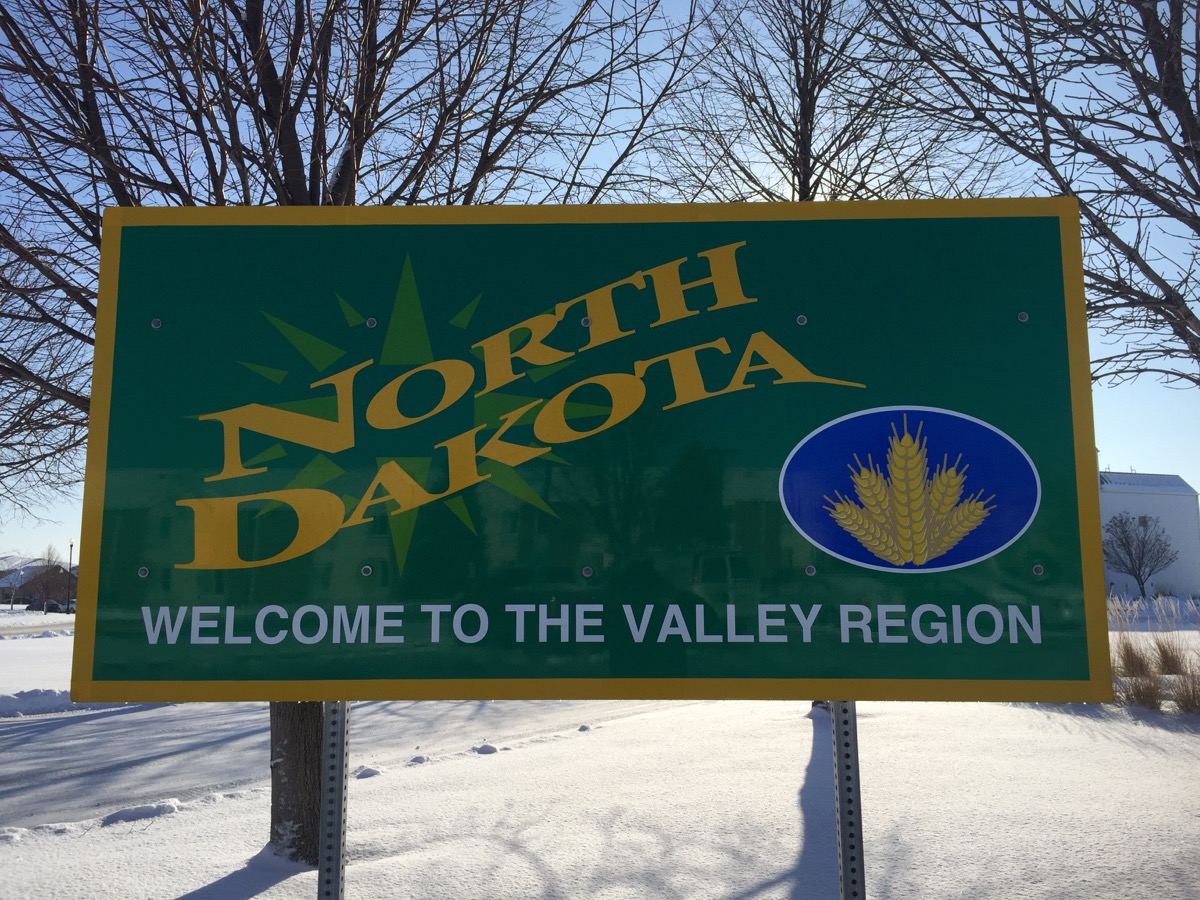
The subject of nicknames is especially timely for the people of North Dakota. That’s because in 2012 they voted by referendum to retire on racist grounds the longtime nickname of the University of North Dakota—the Fighting Sioux. What followed was a three-year battle to choose a new nickname. From five finalists emerged a single victor: The Fighting Hawks. If you’re a UND student, professor or alumnus, that means you’re now a Hawk. Otherwise, you’re what every North Dakota native is: a North Dakotan. Or, perhaps, a Nodak—which, by the way, was one of the four other finalists that lost UND’s naming competition.
35
Ohio
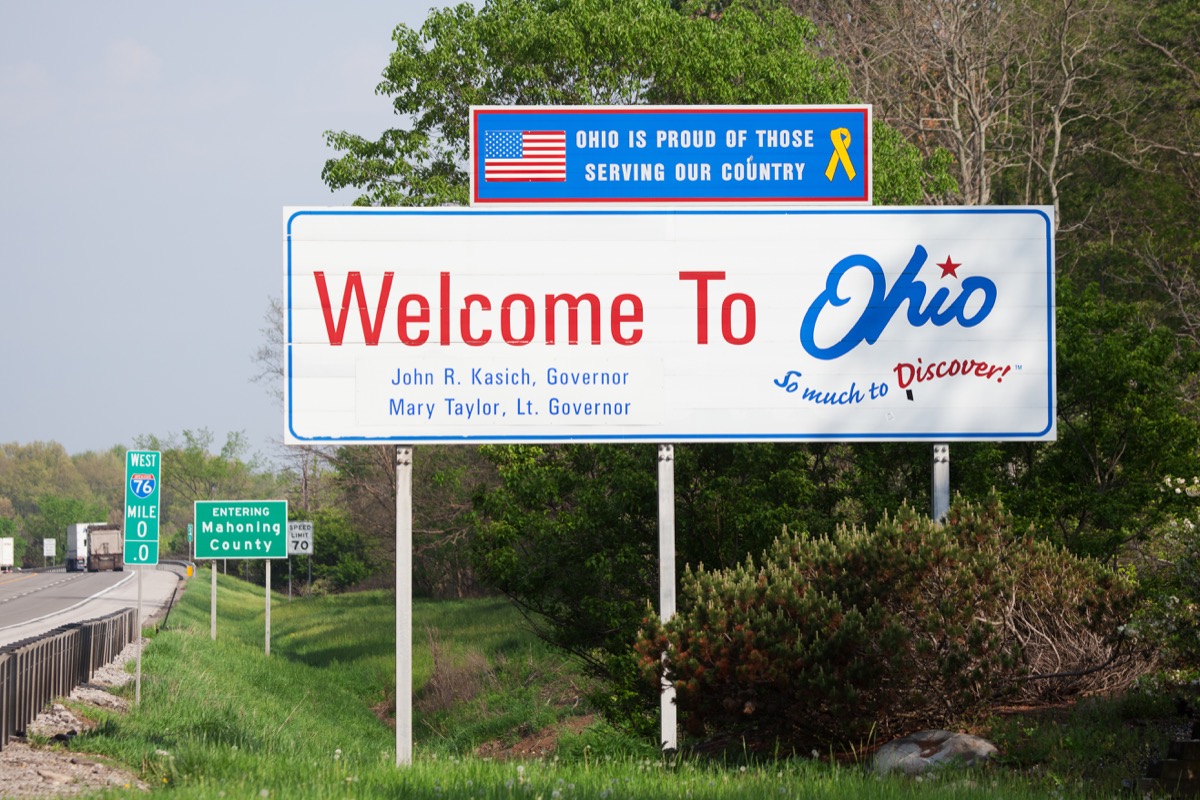
Ohio natives technically are known as Ohioans. True natives, however, self-identify as Buckeyes, and have done so since at least 1840, when Ohioan William Harrison became president. The name comes from Ohio’s nickname, The Buckeye State, which was given to the state due to its abundance of Ohio buckeye trees—trees whose nuts resemble in shape and color the eye of a deer.
36
Oklahoma
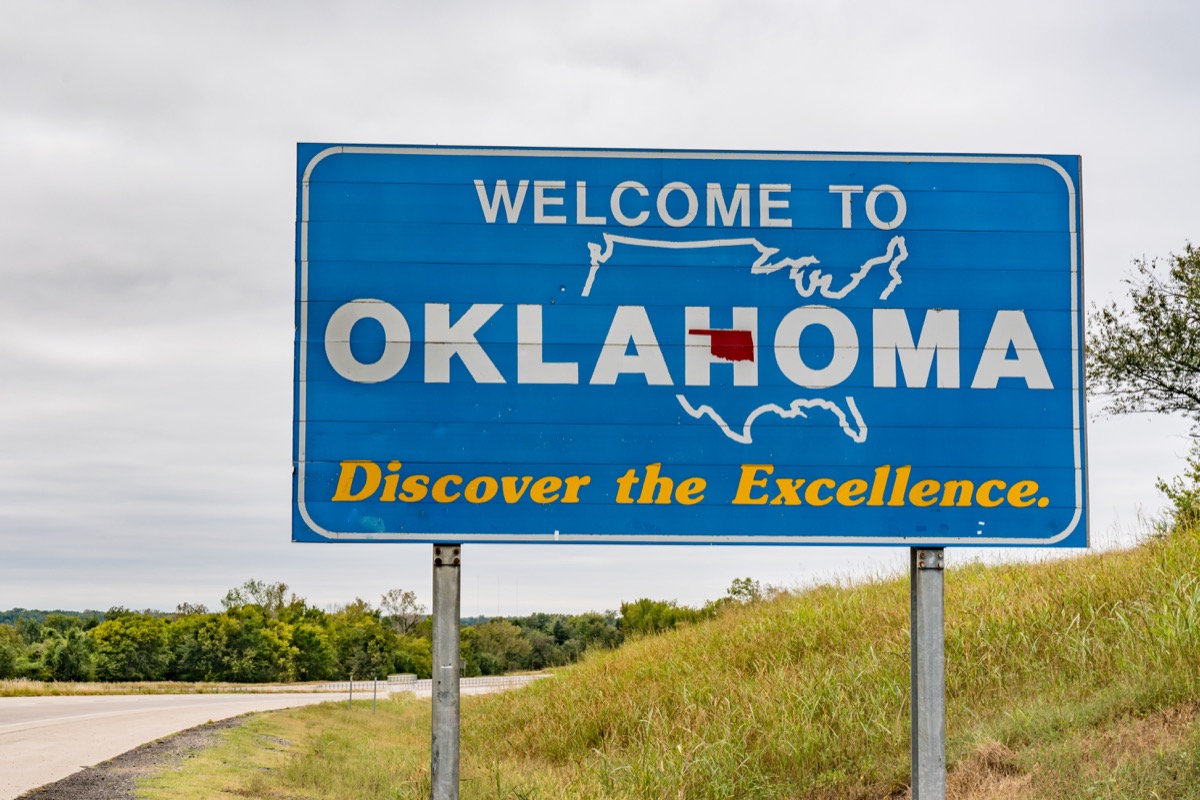
If you’re from Oklahoma! the musical, you’re a performer. But if you’re from Oklahoma the state, you’re an Oklahoman. That, or a Sooner.
The latter dates back to 1889, when it was used to describe settlers who illegally moved into Oklahoma territories before they were allowed to do so. It comes from a clause in federal law called the “sooner clause.” It stated that people could not stake claims on land in new territories until the president issued a proclamation allowing them to do so. Opportunists would move into territories at night and hide until land runs officially began, giving them an unfair advantage over law-abiding settlers. Sooners, then, were scoundrels. That is, until 1908, when the University of Oklahoma adopted the name for its football team. Ever since, Oklahomans have been proud to bear the name Sooner.
You should know that another word, Okie, did not enjoy the same reversal of fortunes. Although it was originally used as a simple truncation of the word Oklahoman, it took on a derogatory tone during the Great Depression, when author John Steinbeck used it in his novel The Grapes of Wrath, which tells the story of an Oklahoma family that loses its farm and moves to California in search of a new life. In the book and in real life, Californians did not welcome the Dust Bowl migrants and used the word Okie as a slur against them. Nearly a century later, most Oklahomans still take offense to the word.
37
Oregon
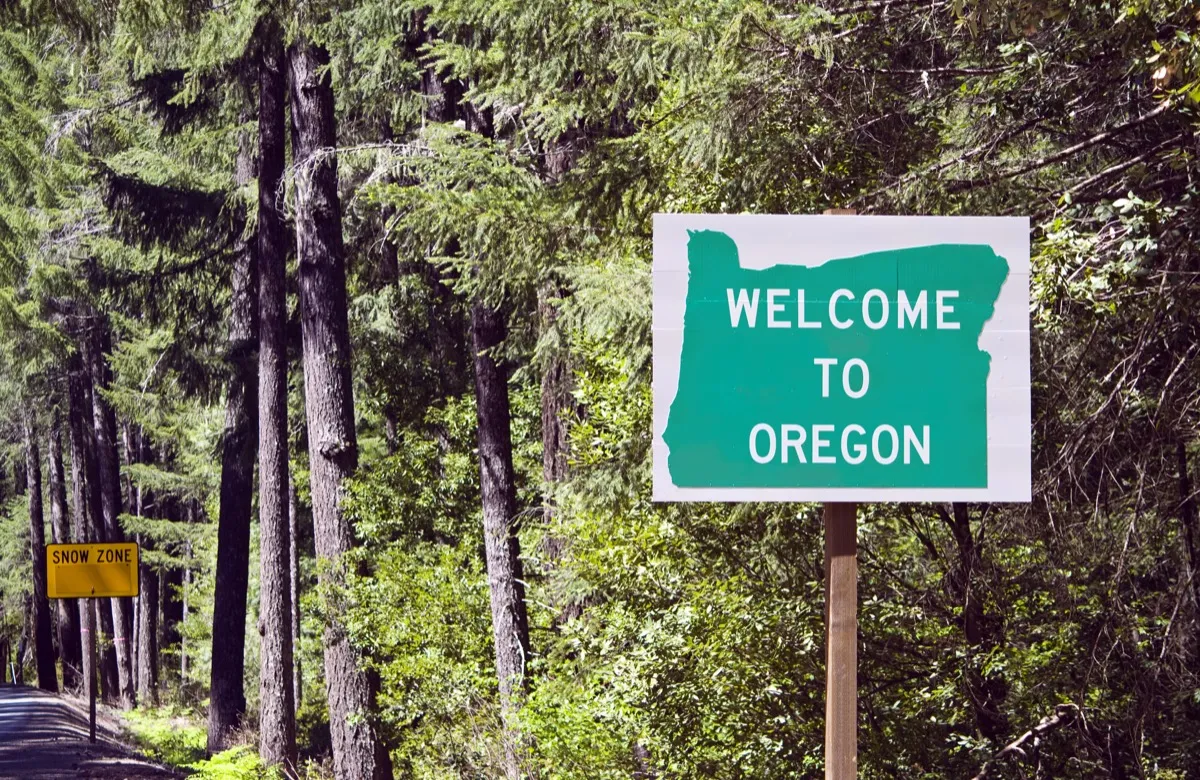
Thanks to the hit TV show Portlandia, lots of folks assume that the only logical word for people who live in Oregon is “hipsters.” But that’s not fair. Although some of them do, not all Oregon natives spend their salaries on free-trade coffee, mustache wax, and vinyl. You should therefore call them by their one true name: Oregonians.
38
Pennsylvania
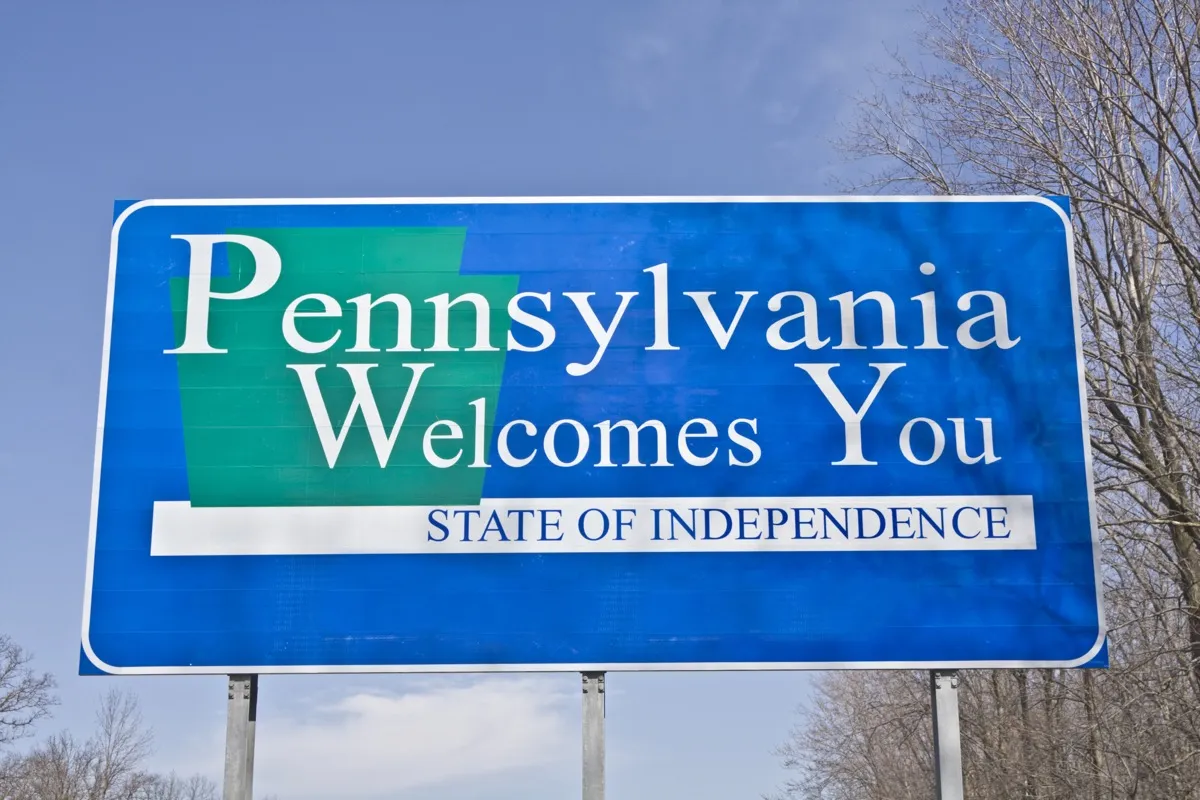
From Philadelphia to Pittsburgh, and everywhere in between, Pennsylvania natives are known as Pennsylvanians—although you might also hear the word Pennamite, which is the name to which Pennsylvania’s early settlers answered. In fact, there’s even a little-known civil war named for them: the Pennamite Wars, during which settlers from Pennsylvania and Connecticut fought each other over land in northeastern Pennsylvania’s Wyoming Valley.
39
Rhode Island
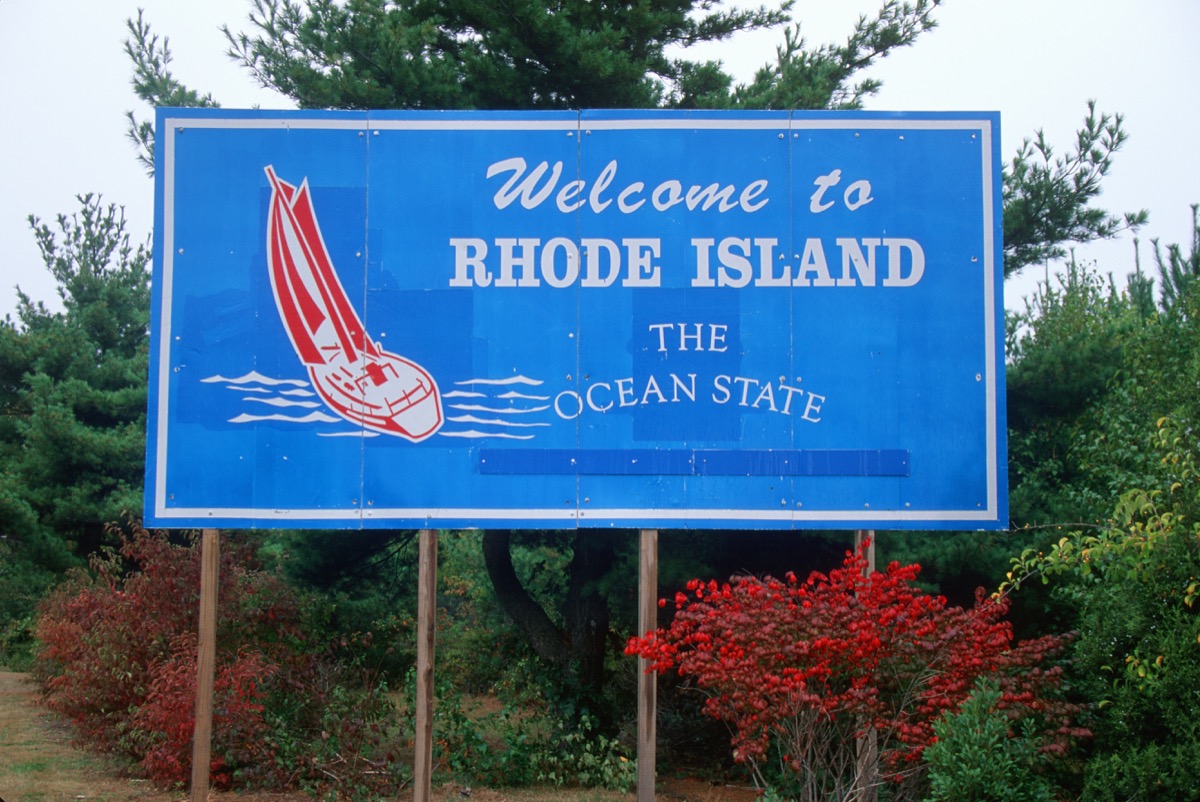
Rhode Island may be landlocked, but that doesn’t stop people who live there from calling themselves “islanders”—Rhode Islanders, to be exact. Rhode Island also is full of Swamp Yankees, rural New Englanders whose ancestry typically dates back to early settlers. Although it’s pejorative on the lips of urbanites, it’s a term of endearment among country folk.
40
South Carolina
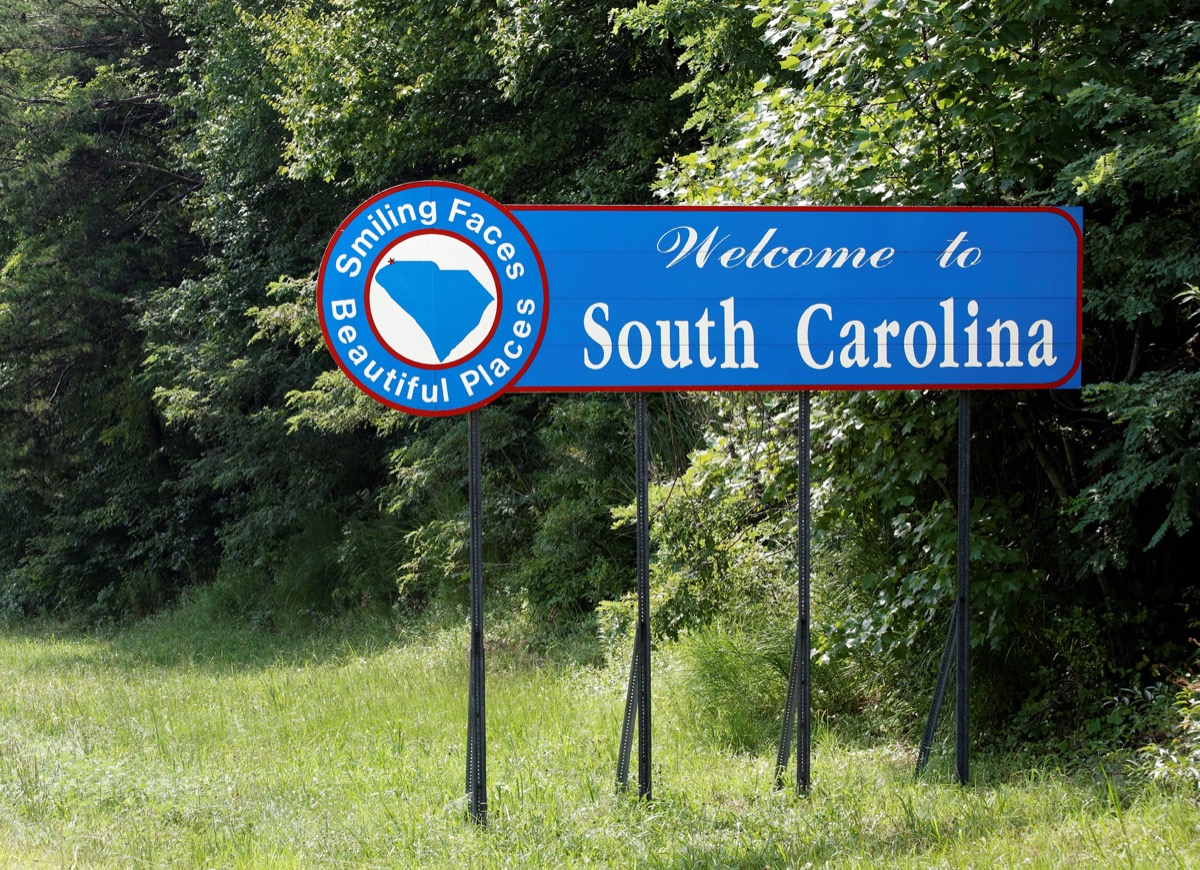
South Carolina is known for its Southern hospitality. When you’re in South Carolina, therefore, you best mind your manners and call the natives by their proper name: South Carolinians. If you’d rather sound local than polite, go with the term Sandlappers, which is a long-held nickname for South Carolinians—especially those who live on the coast—that references South Carolina’s low-lying geography (it’s known for its marshy lowlands, called the Lowcountry).
You might also hear some South Carolinians go by the name Gullah or Geechee, which are reserved for descendants of the West African slaves who worked the plantations of the lower Atlantic coast.
41
South Dakota
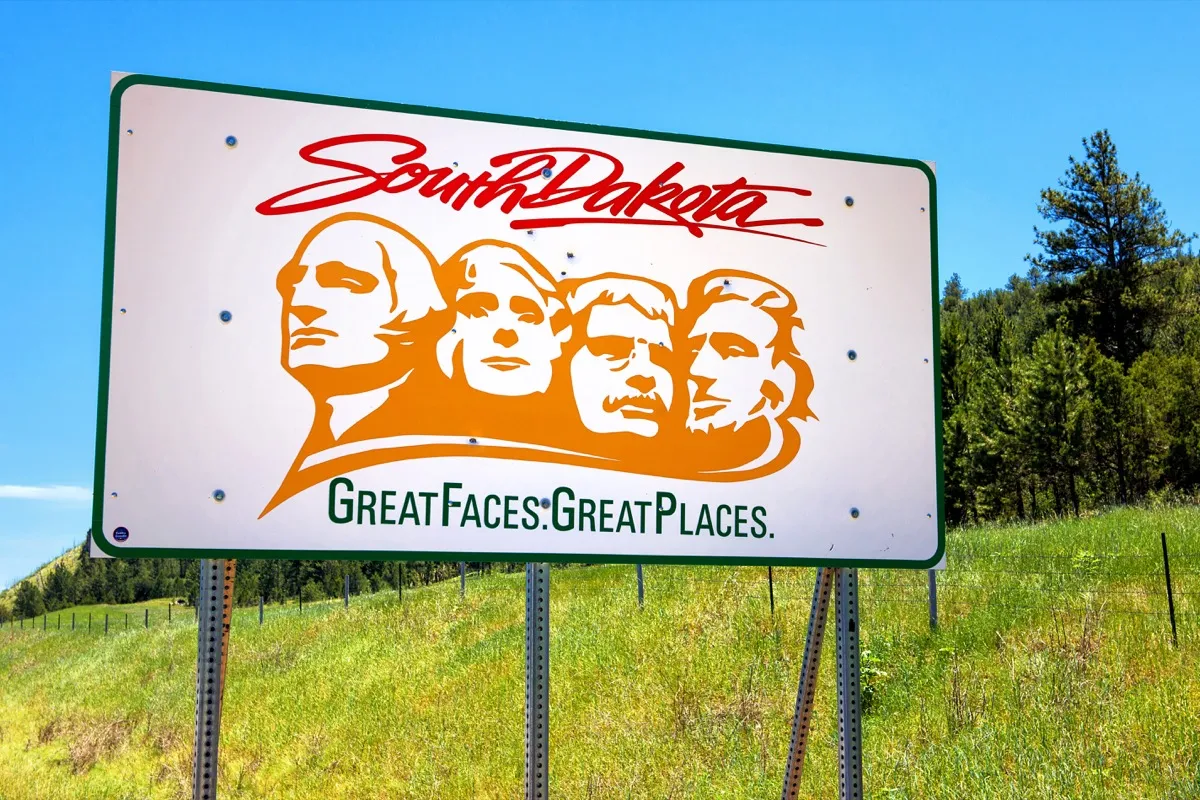
The most famous faces in South Dakota belong to George Washington, Abraham Lincoln, Thomas Jefferson, and Teddy Roosevelt—the four presidents whose faces reside on Mount Rushmore. Because none of them were from South Dakota, you can’t exactly call them South Dakotans. But that’s precisely what you should call everyone else who resides in the Mount Rushmore State.
42
Tennessee
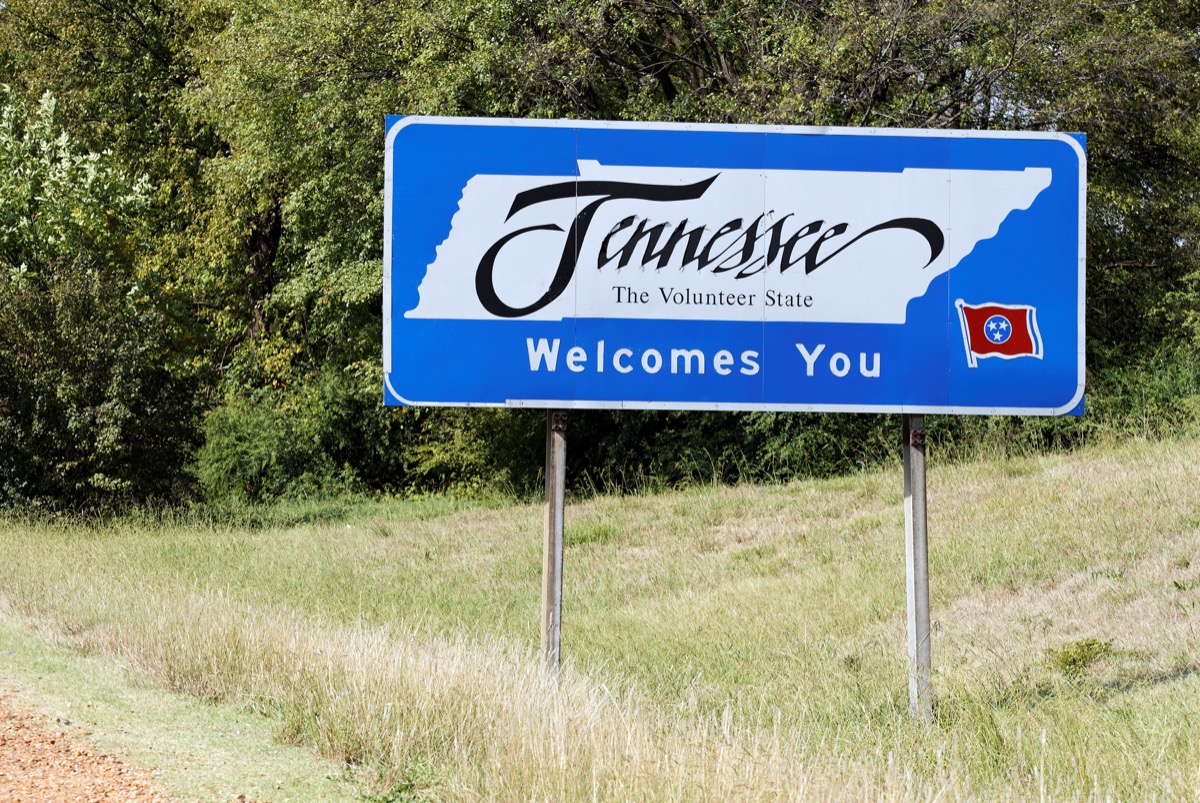
Like the state’s largest newspaper, The Tennessean, Tennessean is what you should call anyone who’s from Tennessee. But you have plenty of other choices, too. For instance, you can call Tennesseans Volunteers—or Vols, for short—which comes from Tennessee’s nickname as The Volunteer State, earned during the War of 1812 when Tennessee sent 1,500 volunteers to fight the British. You might also call Tennesseans Big Benders or Butternuts; the first is derived from another Tennessee nickname—The Big Bender State, which is a reference to the Native American name for the Tennessee River—while the second was conceived during the Civil War, when many Tennessee soldiers wore homemade, tan-colored uniforms instead of the gray uniforms for which Confederate soldiers were known.
43
Texas
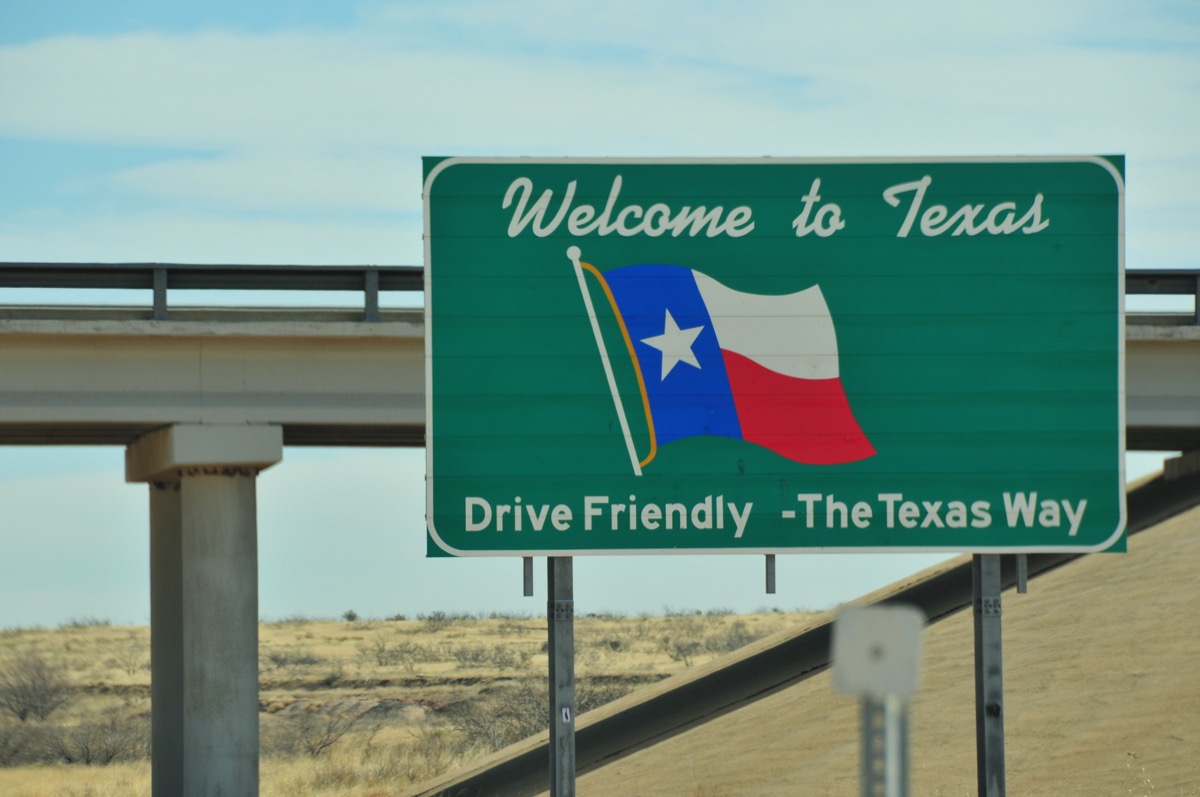
As it turns out, not everything is bigger in Texas after all: The name by which natives go is short and sweet—Texan. Once upon a time, though, you might also have encountered Texians (Texas residents of Mexican descent who resided in Texas first when it was part of Mexico, then when it became part of the United States). Their modern-day equivalents—Texans of Mexican descent who were born and/or raised in Texas—are Tejanos.
44
Utah
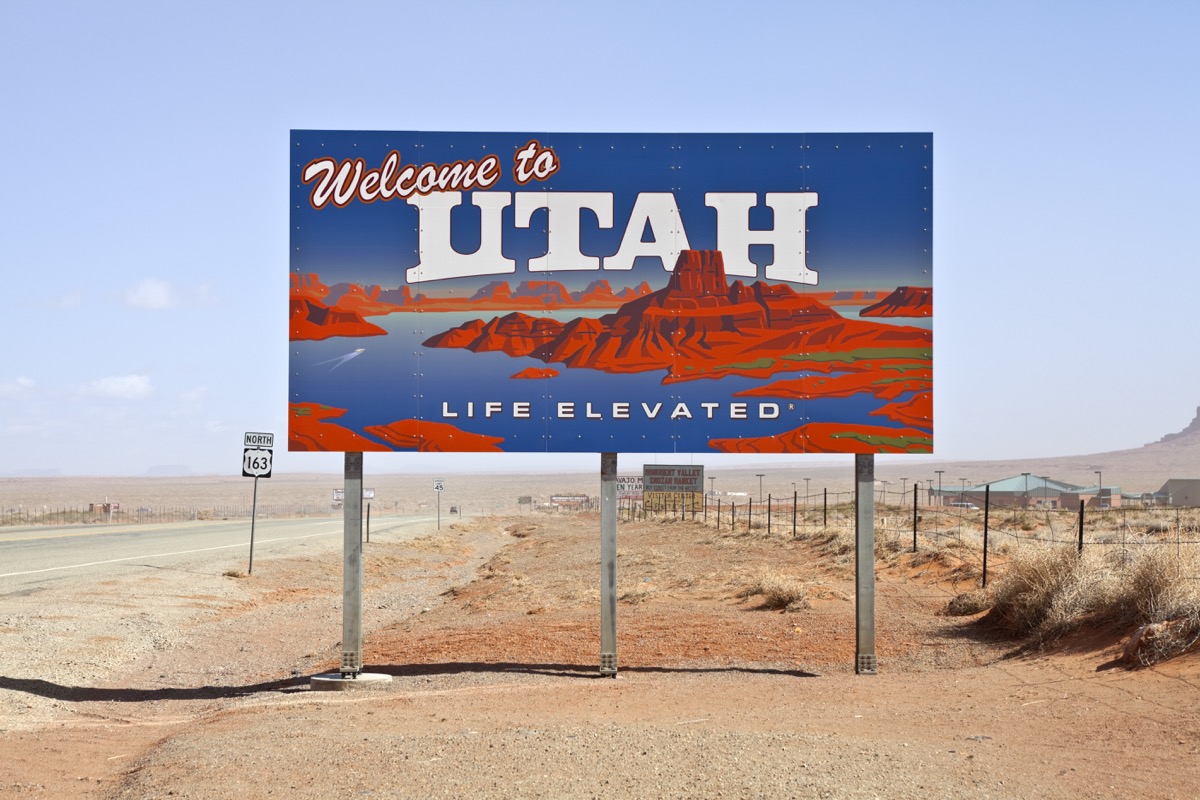
There’s considerable debate among the people of Utah: Are they Utahns or Utahans? Although there are passionate advocates on both sides, a parliamentarian would have no choice but to declare, “The Utahns have it!”
45
Vermont
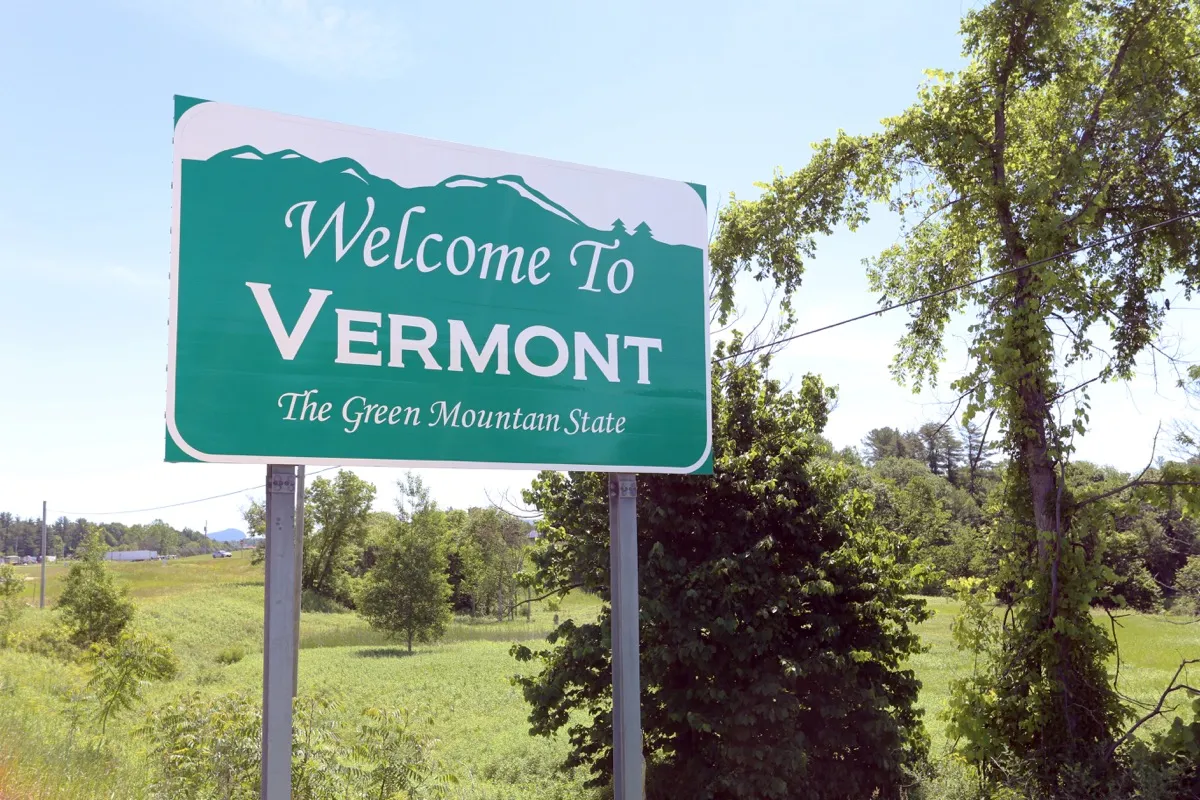
People from Vermont are known for being independent thinkers. When it comes to demonyms, however, they are of one mind (and one name): Vermonters.
46
Virginia
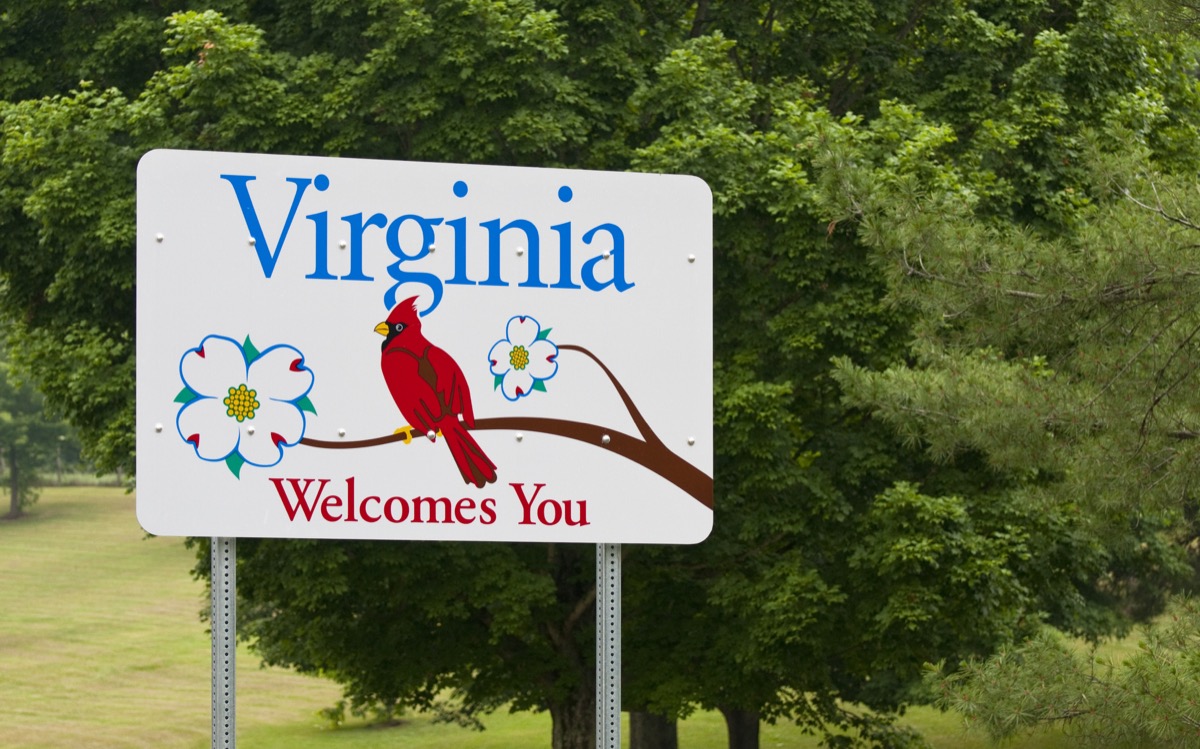
Virginia goes by the nicknames Old Dominion, Mother of Presidents, and Mother of States. When you meet someone from Virginia, however, you probably shouldn’t call them “old” or “Mom.” That would be awkward. Instead, stick to the standard demonym: Virginian.
47
Washington
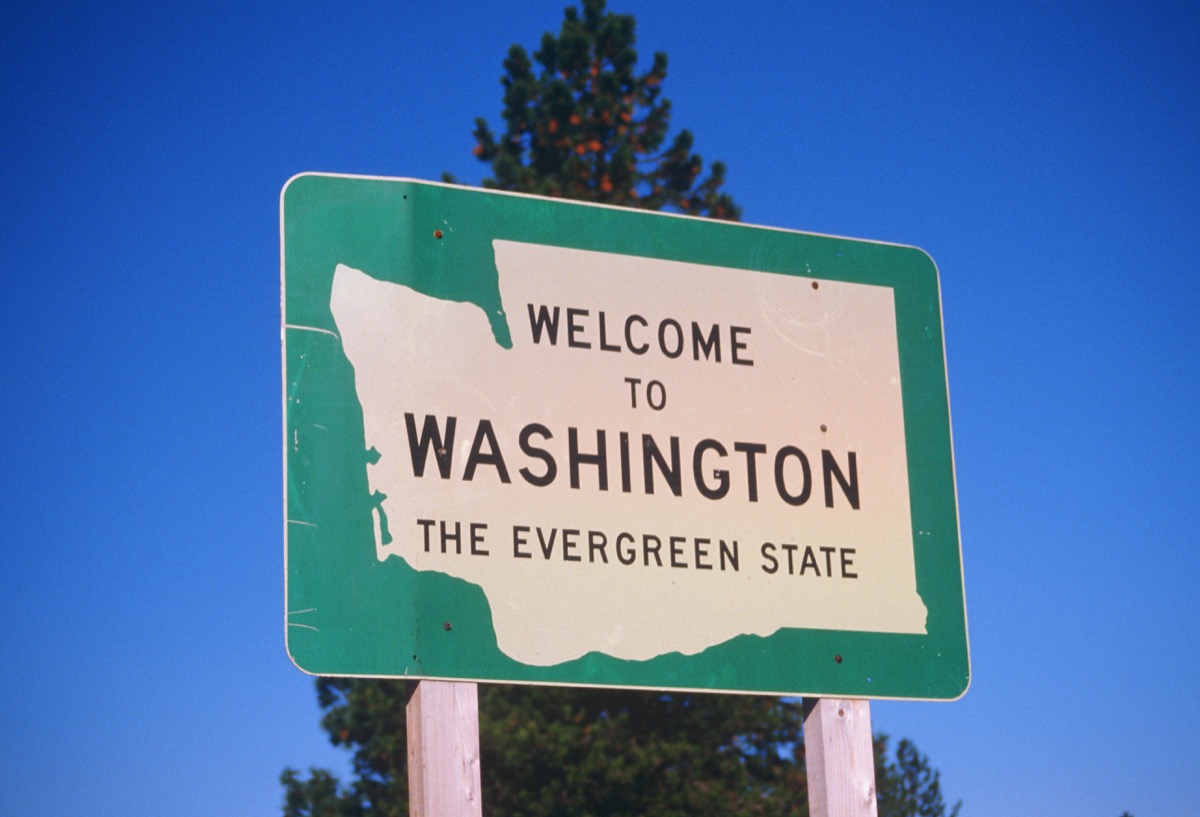
Washington State is the birthplace of Starbucks. If its citizenry were to walk into the nearest café and order a grande vanilla latte, the name on its cup would be Washingtonian.
48
West Virginia
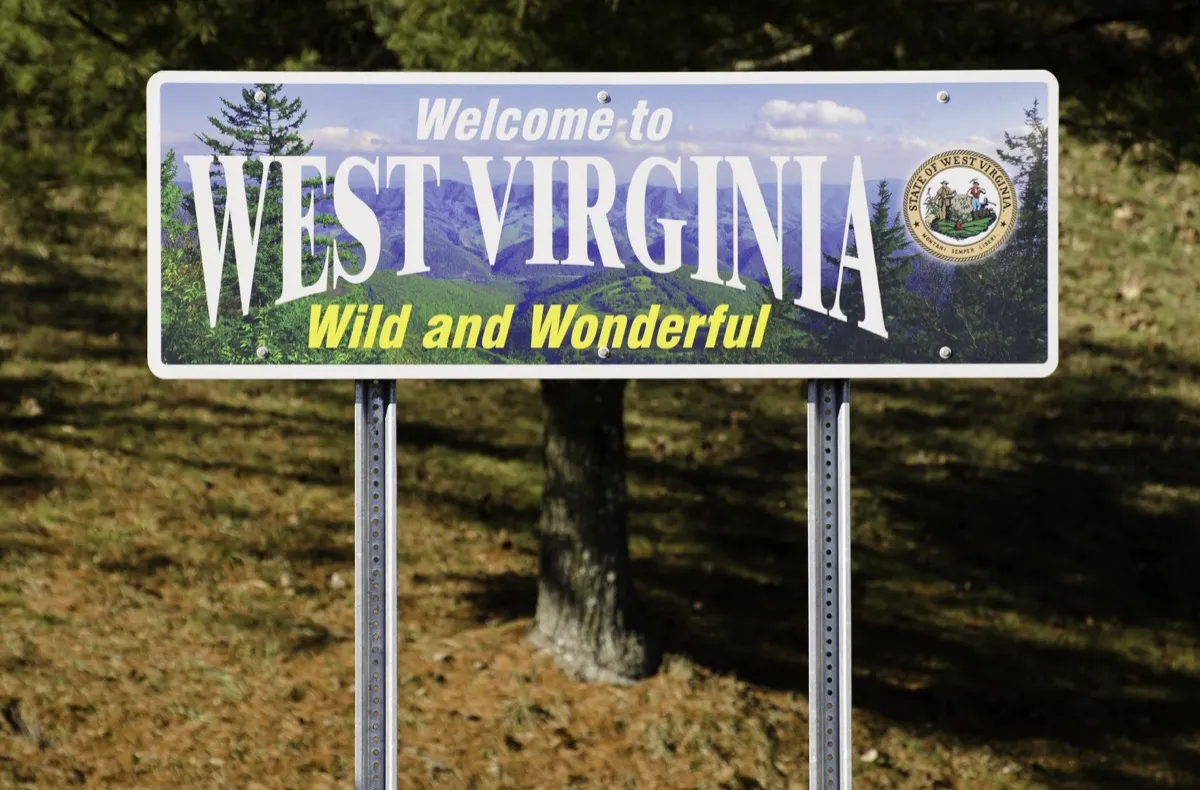
West Virginia’s state seal reads, “Montani Semper Liberi,” which is Latin for “Mountaineers are Always Free.” It’s a celebration not only of freedom—West Virginia seceded from Virginia during the Civil War because it wanted to be a free instead of a slave-holding state—but also of the state’s most important natural resource: the Appalachian Mountains. Because the mountains are as important to the state today as they were back then, the people of West Virginia still self-identify as Mountaineers (in fact, West Virginia University’s official mascot is the West Virginia Mountaineer). Of course, you can always just call them West Virginians, too.
49
Wisconsin
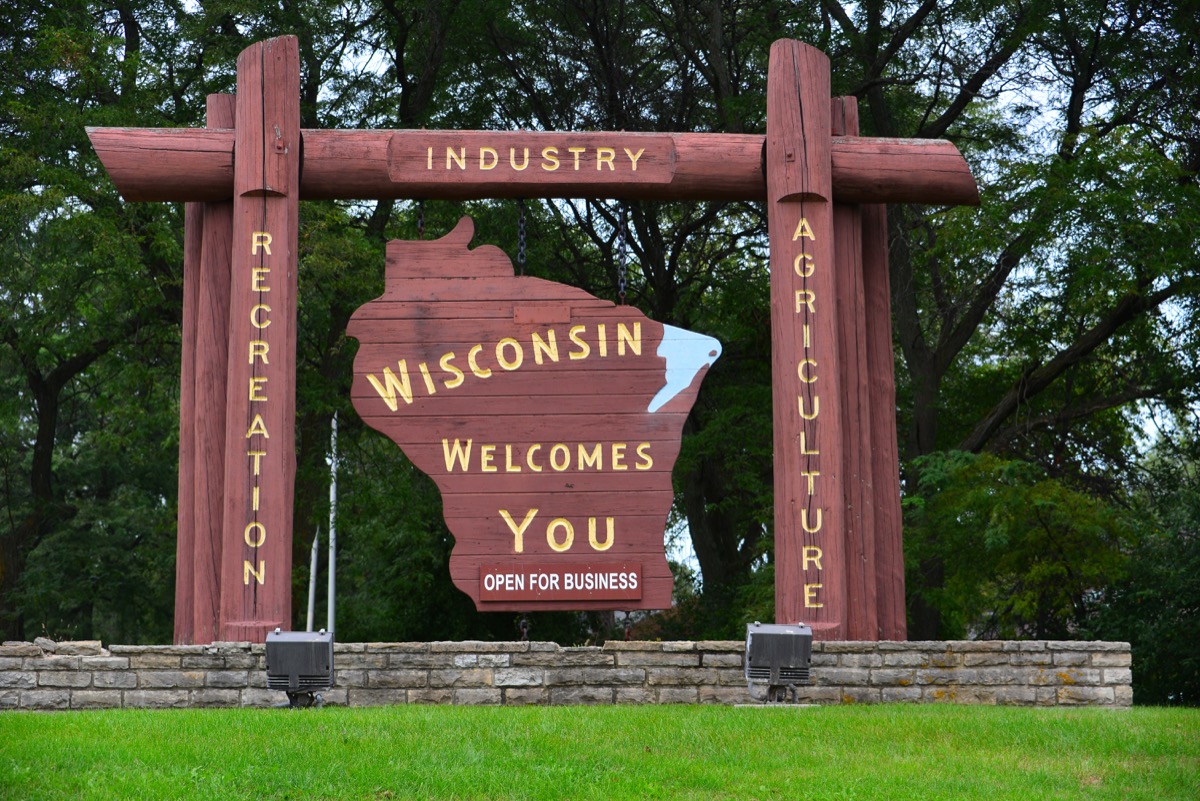
If Wisconsin is known for one thing (that is, other than its beloved football team, the Green Bay Packers), it’s dairy. Cheese, to be exact. It should come as no surprise, then, that the go-to nickname for a Wisconsin native is Cheesehead. It began as an insult. When the Chicago Bears won the Super Bowl XX in 1986, the story goes, they taunted their northern neighbors by calling them Cheeseheads. In 1987, a man named Ralph Bruno made a cheese-shaped hat that he wore to a Milwaukee Brewers baseball game. The hat was so popular that he began manufacturing it and selling it at Wisconsin sporting events—including Packers games, where the hats are now a staple among fans who have reclaimed the name Cheesehead as their own.
But Cheesehead isn’t the only name to which folks in Wisconsin answer. They also go by Badgers—Wisconsin was nicknamed The Badger State in the 19th century because miners there dug temporary homes out of the rock in the mines where they worked, as if they were badgers digging for shelter—or simply Wisconsinites.
50
Wyoming
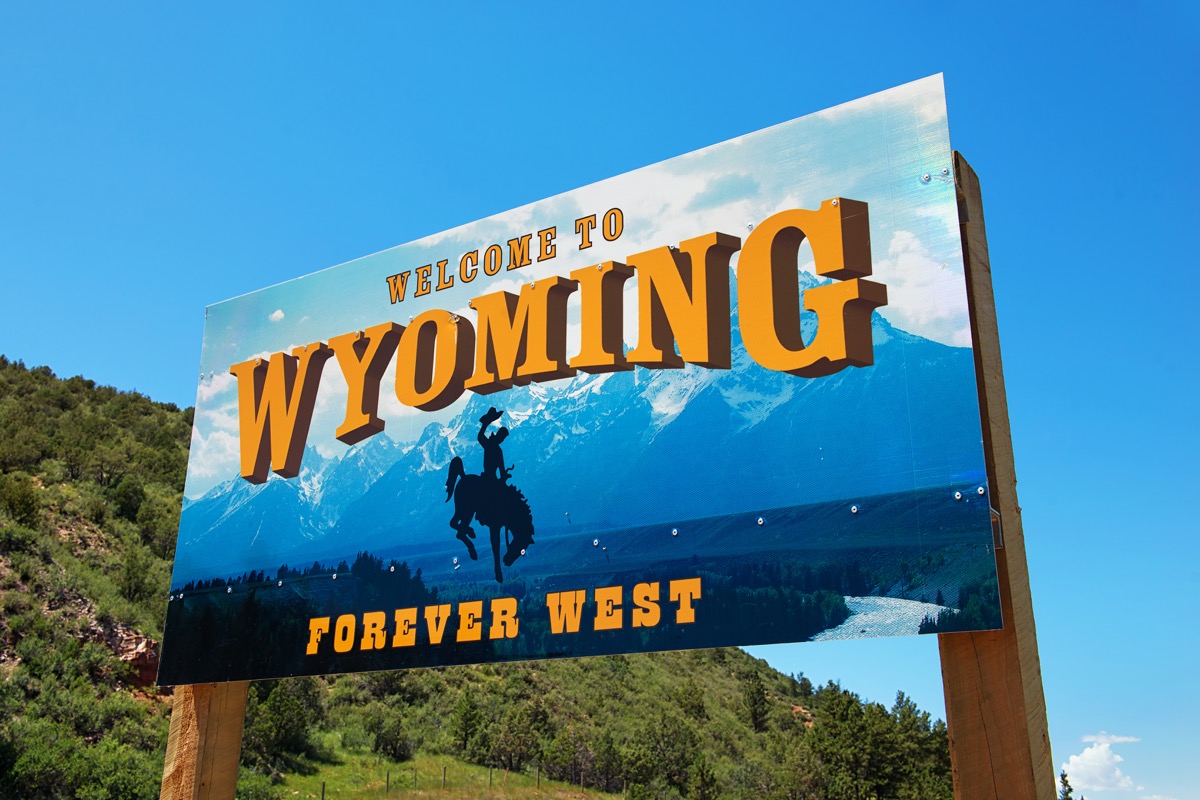
Wyoming has fewer residents than any other U.S. state, and you can call all of them Wyomingites.